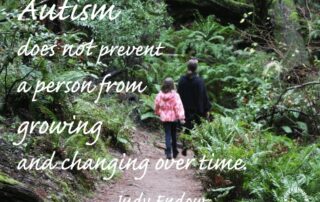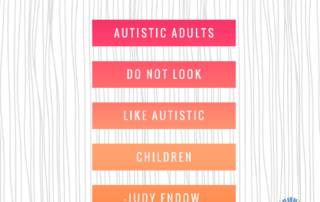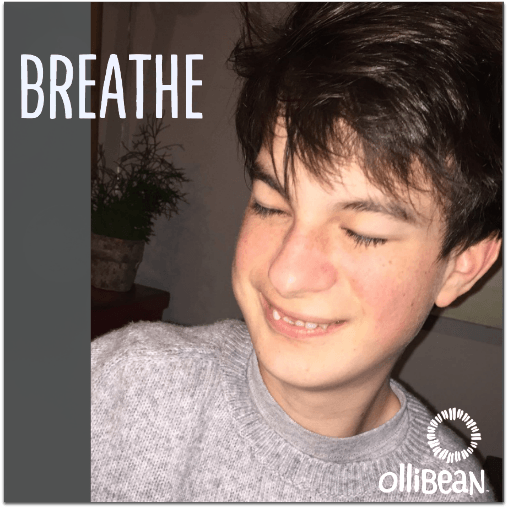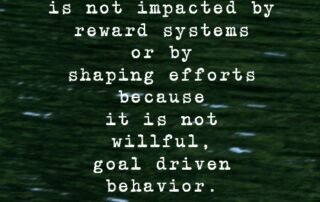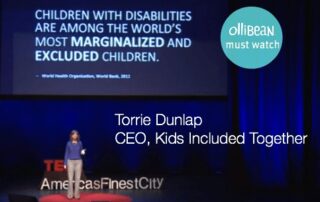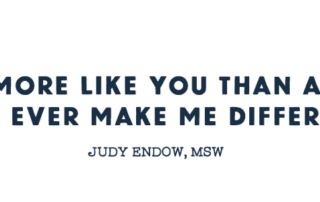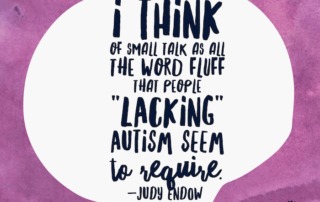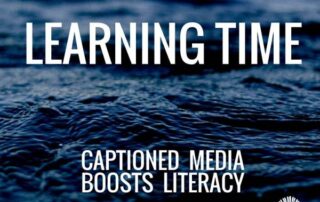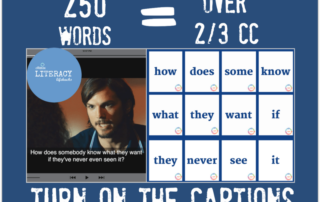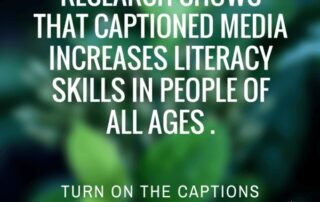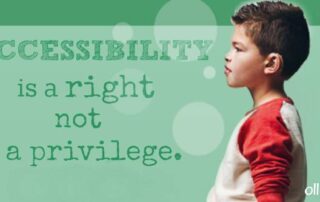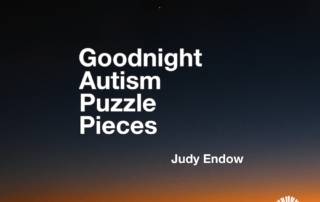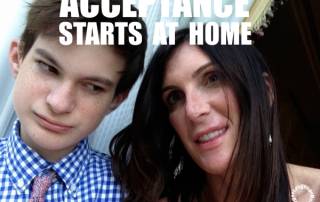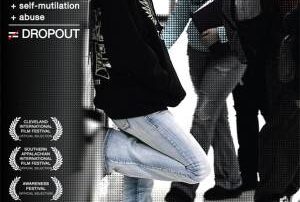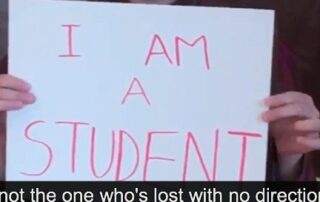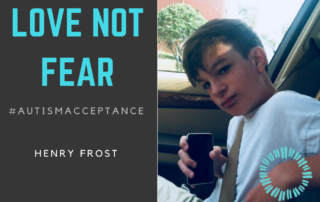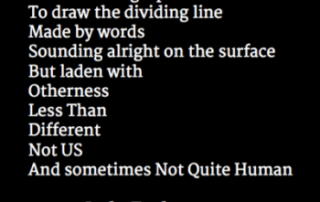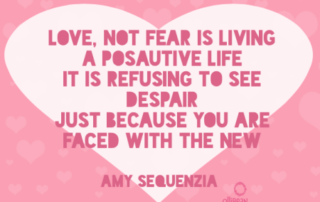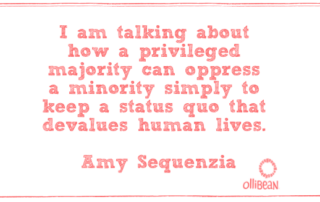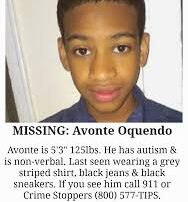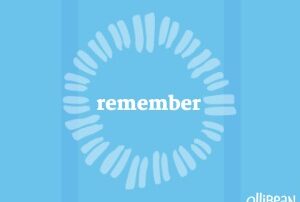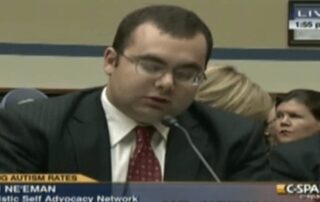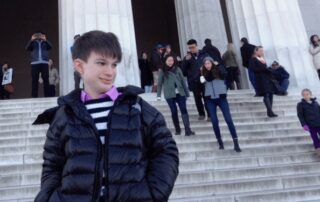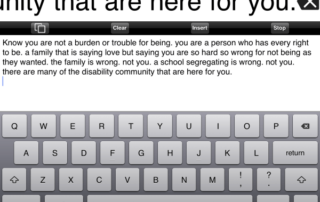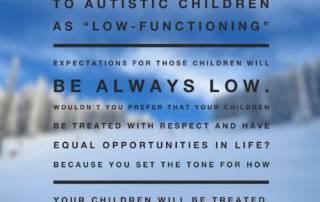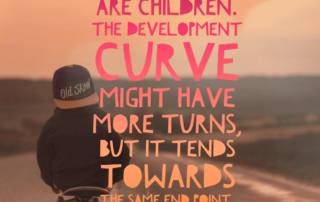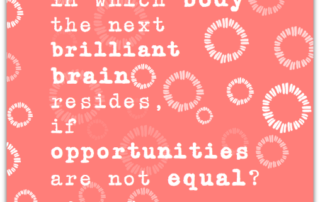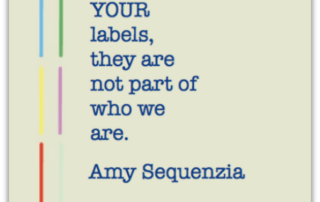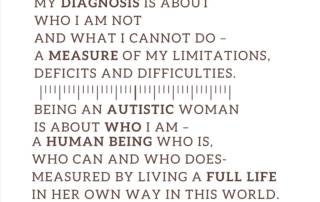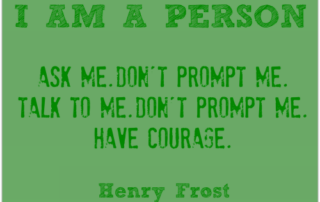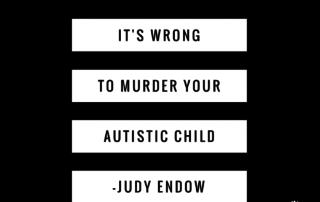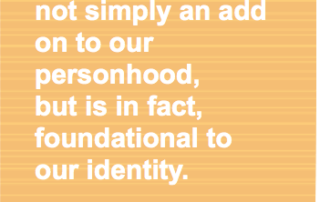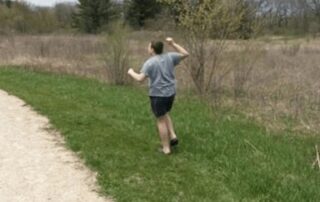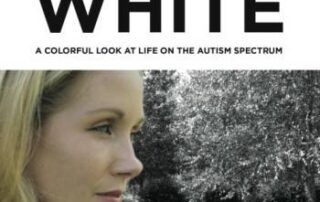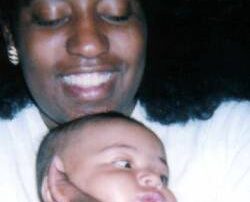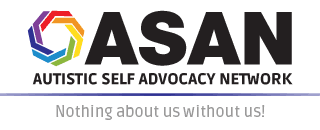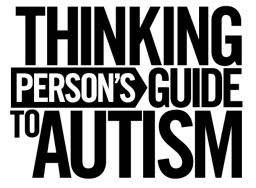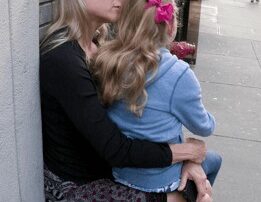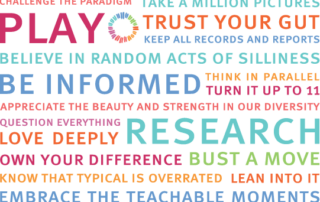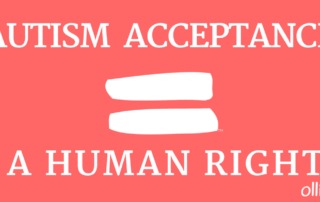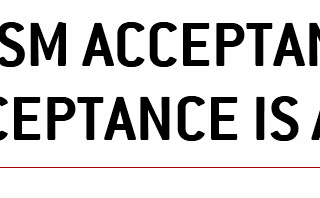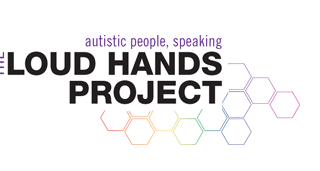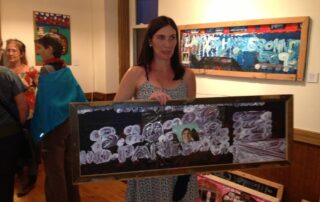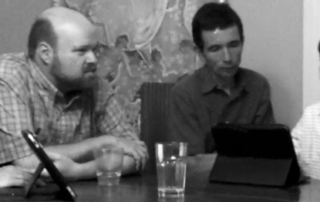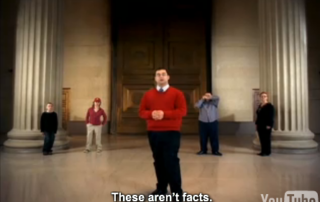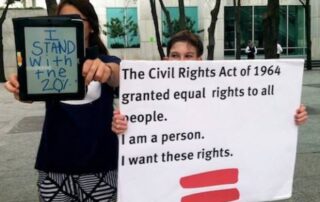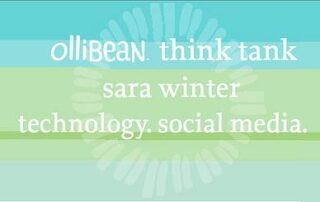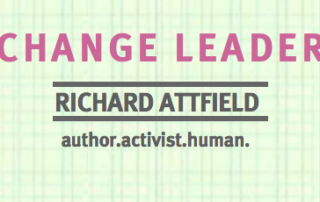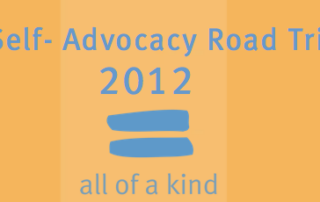Communication, Interaction, and Autism Acceptance
If you've read enough of my writings, you know that I am an activist for the rights of all people - especially Autistic people - to communicate using whatever method it works for each individual. Communication and Autism Acceptance Everybody communicates. Communication doesn't need spoken words. Communication doesn't need words at all. Behavior is communication. Smiles, looks, our bodies - those are used for communication and they are as valid as any word. I can type, and I like to type. Even if typing is exhausting, I still use this method to speak out. Interaction and Autism Acceptance But I
Intelligence Is an Ableist Concept
Intelligence Is an Ableist Concept, by Amy Sequenzia. Warning: use of the R-word. Am I “Intelligent”? Too many times I see the word "intelligence" in articles that are supposedly about disability rights. The word comes up to explain that being disabled does not mean that there is a "problem" with the brain. Many times this happens when a physically disabled person, or someone talking about physical disabilities, want to point out that “their minds are fine”. The word is also used to tell stories of non-speaking Autistics who learned to type to communicate and "proved" that they are "intelligent".
Living My Disabled Life: My Story Is Mine to Tell Part 3
How I Tell My Story by Amy Sequenzia. Living my disabled life: My Story Is Mine to Tell Part 3. (Part 1 Autism: My Story Is Mine to Tell and Part 2 Love, Respect and “Autism Parents” ) By living my life. Unapologetically. Fiercely. With pride. I am me. I am disabled and I am a perfect being, despite the bias and oppression imposed on me. I am a perfect being despite my human flaws. My story is mine. The life I live is the one I have. I like my life. I don’t like what non-disabled people believe my life to
Autism: My Story Is Mine to Tell
My Story is Mine to Tell by Amy Sequenzia. Everywhere - on the web, in conferences, in books, on TV and on the radio, in college lecture halls - people are talking about autism. Too many of these voices are non-autistic voices. Too many of these voices don't really know what autism is. Too many of these voices are simply telling old stories - full of assumptions - that non-Autistics voices have told before. Too many of these voices are actively silencing and ignoring Autistic voices, while being hostile to us when we tell them they are wrong. They tell
Proudly Autistic by Amy Sequenzia
by Amy Sequenzia Being Proudly Autistic Being proudly Autistic. Being proudly Disabled. Being me. Telling my story because my voice is my own. My story is mine to tell. I define myself. Since I was very young I have had an independent mind. Sometimes - no, many times - for a long time, I was silenced. I was told to comply. I was called names. To many, I didn't have dignity, I didn't deserve dignity. But I persevered. Perseverated. Persisted. Some people saw my humanity. To them, I let myself known. Without words. With smiles. An occasional hug. And
I Resist by Amy Sequenzia
by Amy Sequenzia. I RESIST My resistance is an act of defiance. I defy the assumptions of an unlivable life Of a tragic existence Of dreams that would never become true. The world said I wouldn't - I defied. The world said I couldn't - I defied. The world says that I won't, that I can't - I resist. I defied the expectations, and I kept existing. I defied assumptions, and I celebrate my existence. I resist the ones who insist on erasing my existence. I defy the ones who deny me respect. My existence is an act of
Mental Health Therapy and the Autistic Client: When Clinicians Don’t See the Autism (It’s All the Autism)
When Clinicians Attribute All Psychiatric Symptomatology to the Autism Autistic people find their way to therapy when symptoms of depression, anxiety, OCD and other diagnoses become problematic to them in their daily lives. When a client has been previously diagnosed with autism it is common for mental health clinicians to attribute all psychiatric symptomatology to the autism, which often results in autistics not being diagnosed or treated for comorbid mental illnesses when warranted. As clinicians we need to understand the autistic operating system – in other words, to see the autism – if we are to be helpful to
When Disabled Students Are Abused
This is the second in a series of posts about trauma due to criminalization of disabled students by Amy Sequenzia. Content Warning: ableist slurs, description of abuse. I write this post based on the case linked here, NC Boy With Autism Slapped: Former Teacher Gets Jailtime , and on similar cases that make the news when they happen but after that we don’t hear about the victims. I will tell what happened to me, how I reacted to the abuse, and the lasting trauma that might have gone unnoticed to many. The case in the link had a better ending than most.
Mental Health Therapy and the Autistic Client: When Clinicians Don’t See the Autism
A Series on Mental Health Therapy and the Autistic Client by Judy Endow, MSW When Clinicians Don’t See the Autism (Can’t See the Forest for the Trees) Today, autistic people, just like the population at large, find their way to therapy when symptoms of depression, anxiety, OCD and other diagnoses become problematic to them in their daily lives. As clinicians we need to understand the autistic operating system – in other words, to see the autism – if we are to be helpful to our autistic clients. When we do not have a strong grasp on this the results are
The Criminalization of Disabled Students
This is the first of a series of posts about trauma due to criminalization of disabled students by Amy Sequenzia. The Trauma Is Real Everyone has heard of the school-to-prison pipeline. It is the system that criminalizes students' minor infractions of school rules. It is the result of "zero tolerance" policies, of the presence of cops (School Resource Officers - SRO) in schools. It has become so extreme that a student kicking a trash can, due to frustration, can lead to a criminal record, detention in a juvenile facility and criminal charges instead of a school disciplinary action, like after
Mental Health Therapy and the Autistic Client: The Autistic Operating System, Part One
The Autistic Operating System, Part One Mental health diagnosis and treatment has evolved over time according to what makes sense and what works for most people. We have an increasing body of research around mental health issues that informs us today. However, when it comes to autistic people we do not have a body of research that informs us about diagnosis and treatment of mental health disorders. Autistic people are not like most people. This means we need to understand the underlying autism neurology along with its impacts in the realm of diagnosing and treating mental health disorders
Mental Health Therapy and the Autistic Client
By Judy Endow , MSW Mental Health Therapy and the Autistic Client: Establishing Context Background Information: The autism neurology gets hit with elements of confusion, chaos and change as a person goes through their day. How this happens is different for each individual on the spectrum. For example, Brady’s neurology startles to a touch on the arm, DeShawn’s neurology reacts adversely when it perceives a surprise change in the therapy room such as new curtains and Aysia’s neurology delivers a punch when her therapy routine was altered by Grandma bringing her rather than mom. Each of these individuals was abruptly
Toxic Autism Awareness
Toxic autism awareness - sorting out autism fact from autism fiction Judy Endow Autism Fact or Autism Fiction During the past week I have run into two different people in my personal life who have expressed erroneous beliefs about autism. Both people knew that besides being autistic myself, I am a therapist in the field of autism, have written many books and numerous blogs on various autism topics, and consult and speak internationally. Without a doubt, these people knew that I know about autism. And even so, they presumed their comments to be accepted fact so much so that they
The Advantage of Autistic Difference in Visual Perception
Autistic writer, artist and consultant, Judy Endow on autistic difference in visual perception. As a child, people sometimes thought I was stubborn and resistant when I did not want to allow them into my space or to do what they wanted me to do. They did not understand the negative effect they had on me and on my surroundings, and at the time, I did not have the words to explain it. Sensory Information and Perceptions Today I have the words and can explain. I do so in hopes that it might help others who may not yet have their
Eye Contact and Autistic Dissociation: One Example
Autistic writer, artist and consultant, Judy Endow on eye contact and autistic dissociation. Autistic Dissociation “Dissociation is the ability to cut off from what is happening around you or to you. In its simplest form it is daydreaming. It is a skill all children have and which children with autism tend to overdevelop in managing a world they find overwhelming for a whole range of reasons.” Donna Williams (Donna Williams at http://www.donnawilliams.net/333.0.htm) Overwhelming Eye Contact and Autistic Dissociation I can remember the overwhelming experience having eye contact with others sometimes had on me as a child. Too much bright,
Autistic Neurology and Behavior
Judy Endow explains how understanding autistic neurology shifts our perceptions and enables us to support autistic students. "Besides being kind and being the right thing to do, it is far more expedient to support autistic neurology than it is to assume negative character and ill intentions about your student with autism when he is struggling." All people use behavior. Autistic people use behavior just like people who are not autistic. Basically, when a problem is encountered, people behave in a way so as to fix the problem. We all do this, whether we are autistic or lack autism!
Disability Policy: Clinton versus Trump
In a few weeks will have elected a new President of the United States. Many of us get our information from watching TV. The trouble with this is we only get the information the TV decides is news worthy. Unfortunately, most things concerning disability are not newsworthy. This means that rather than seeing a candidate’s disability policy on the evening news we are more likely to see a candidate’s latest purported scandal whether it is about deleted emails or admitted past sexual abuse. While these things can be informative, I think it is helpful to also understand where the two
Autistic Burnout and Aging
Judy Endow Examines the Interplay Between Autistic Burnout and Aging Last week I returned from a vacation that I had been dreaming of taking for several years. I had booked my vacation quite a long time ago. After booking it, my personal resources declined. Many autistics know this phenomenon as autistic burnout. I am beginning to understand that there is likely some interplay between autistic burnout and aging . In autistic burnout we come to the end of our resources that enable us to act as if we are not autistic in order to meet the demands of
Autism, Direct Instruction and Having Friends
Autism, Direct Instruction and Having Friends by Judy Endow Social Understanding and Communication Social understanding and communication are two areas impacted by autism neurology. The way this plays out is different from one autistic individual to the next. Typically, for autistics I have worked with, this means that they do not always pick up social information from the world around them through observation only as most people do. Instead, they sometimes need direct instruction concerning information their autistic neurology doesn’t allow them to automatically pick up and learn. I think it is important that those around autistics understand that not
Autism and Movement Fluidity in Thinking
Autism and Movement Fluidity in Thinking by Judy Endow Unreliable Fluidity in Thinking One of the hardest things about my autism is the unreliable fluidity of my own thinking. Sometimes my thoughts are fluid and sometimes they are not. When my thoughts are fluid I can easily think through task-oriented things such as making a meal, writing an article, or cleaning the house. I can make a mental (or written) list and follow it. I can think of a main idea and sub topics. I can gather supplies and start. When my thoughts are not fluid life is a bit different.
Autistic Consultant on Autism, Making Friends and The Hidden Curriculum
Autism, Making Friends and The Hidden Curriculum by Judy Endow It can be difficult for some autistic people to sort out what things are okay to say and what things are not okay to say in various social situations. This was true for a high school student I worked with during the past year. William very much enjoyed talking with others, but was asking questions and making comments that were not appreciated by teaching staff. Worse, these comments and questions were causing other students to avoid him rather than include him in social exchanges. Each time teaching staff explained to
The Gymnastics of Person First Language
by Amy Sequenzia This post is about Person First Language and autism. Another title for this post could be: "Disability Language, and "Gymnastics". Some might find part of it funny, but I am not kidding. I wrote about why I believe Person First Language (PFL) is ableist, and how individual choices should be respected - the "individual" being the disabled person. Person First Language and Autism Most independent-thinking Autistic adults prefer Identity First Language (IFL). Some use Person First Language and their choice should be respected. This post is directed to non-autistics, to the media, and to autism advocacy organizations
Realities of Being an Autistic Therapist
by Judy Endow Realities of Being an Autistic Therapist In my work as a clinician licensed in my state to provide mental health therapy, many parents of children diagnosed with autism tell me how much they appreciate the fact that I am not only a therapist, but also am autistic. They feel they have a hybrid of sorts – I am a clinician, an autistic and have parented both children with and without autism. In addition, I have been an autism consultant for several school districts over the years so also can appreciate the educational side of things when it
Autism, Social Greetings and Rhetorical Questions
by Judy Endow Autism and Rhetorical Questions Autistic people may not automatically know how to respond to rhetorical social questions such as “How are you?” or automatically reciprocate in social pleasantries such as “good morning.” This is not because they are rude, obnoxious, don’t care, or any of the other assumed reasons people attribute to this behavior. Instead, it is because all social information is not automatically picked up and used by a person with an autistic brain. The autistic brain simply works differently. Even so, autistic people can learn those things their particular brain hasn’t allowed them to automatically
Teaching One Autistic Student to Ask For Help
Teaching One Autistic Student to Ask For Help by Judy Endow During the past school year I worked with a third grader diagnosed with autism as he returned to school after being discharged from a treatment center. Jake displayed many behaviors that did not work well in the classroom. These behaviors occurred predominantly during math class. Jake’s scores in math were 82 – 90 percent over the previous quarter. With these scores, it did not appear that he was struggling in math. I discovered that most of Jake’s behaviors stemmed from frustration. Jake knew when he needed help, but
Teaching Autistic People
by Judy Endow Autistic People of All Ages Can Learn Just like people of all ages can learn, so is it that autistic people of all ages can learn. It is an utterly sad state of affairs that this even needs to be said, but unfortunately, it needs to be said. Too often I see autistic children being babysat rather than being taught at school. When I ask about academic curriculum being used, I am told, “Oh, he has autism” as if this is an answer to my question. In my work as an autism consultant I am called on
Autism and Consequences
by Judy Endow Autism and Consequences Sometimes a person with authority over another engineers a consequence for certain behaviors as a way to decrease the frequency of unwanted behaviors. One way people learn is from consequences. For example, if you leave your car parked outside with the windows down and it rains, the natural consequence is that your car seats will get wet. Sometimes a person with authority over another engineers a consequence for certain behaviors as a way to decrease the frequency of unwanted behaviors. For example, a mother or a caregiver might decide that if hitting occurs at
Autistic People: Persons or Projects?
Autistic People: Persons or Projects by Judy Endow Autistic people experience the world differently than non-autistic people experience the world. One reasons for this difference is the autistic sensory system is quite different from the neuro-majority, which is considered the norm. In addition, the autistic thinking style has differences from the neuro-majority norm. Autistic Sensory and Thinking Differences The autistic sensory system takes in information from the environment. This information can come in too big, too small, delayed or distorted. Autistic thinking style is often visual, concrete and many have a thinking-in-pictures style of their own. This means processing
The Changing Implementation of Accommodations
The Changing Implementation of Accommodations Accommodations are something provided by law to people with disabilities. It is easy for people to understand physical accommodations such as wheelchairs and curb cuts. It is much more difficult for people to understand accommodations when it involves sensory and processing differences such as those common to autistic people. Because an autism diagnosis is one of a spectrum diagnosis there are a variety of ways autistic people experience their particular autism. In fact, even though there may be similarities, just as no two neuro majority people experience the world in exactly the same way,
Autism, Behavior and the Impact of Kindness
Judy Endow on Autism, Behavior and the Impact of Kindness Please know that the behavior of people with autism makes sense in the context of their experience of the world around them. Because typical people do not share our context they are not often able to assign correct . They do their best by assigning meaning to our behavior based on what the behavior would mean were they themselves engaged in it the behavior. Often they arrive at wrong conclusions. Sometimes they even assign negative character traits to us based on their wrong conclusions. Example: As an autistic I can
Autism Visual Thinking and the Parking System
Autism and Visual Thinking Many autistic people think visually. As a young child who thought visually I was often thought to be stubborn and insisting upon my own way when in reality I was merely trying to keep ahold of a thought. Today in my work I come in contact with many on the spectrum and see the same phenomenon at work. Let me explain with two examples: Example Parking Objects: Every day Britt comes to school with a toy from home. It is very difficult for her to leave the toy in her cubby so she carries it
Autism, Death and Mental Health Therapy
by Judy Endow The traumatic event of death is something we all struggle with from time to time over the course of our life. It is no different for autistic people. I am often reminded to be sure to identify exactly what the autistic person is struggling with when it comes to their particular circumstances. I am remembering youngster who had a pet gerbil that died and he didn’t want to part with the beloved gerbil. Three days after the gerbil had passed the pet was still in the little plastic exercise ball, which the youngster was carrying around with
Parents, Are You Listening To Your Child?
As a non-speaking Autistic, I pay special attention to comments and statements made by parents of other non-speaking Autistics, especially children. Many times I see parents lamenting that they will never listen to their Autistic child say "I love you", or how much they long to hear those words.
Autism, Accommodation and Differential Expectations
People generally are very pleased with themselves when they have made an accommodation for me. I know this because they proudly announce it! In turn, I have learned to say thank you when people announce their thoughtfulness at making an accommodation for me. I truly am thankful because it allows me a fuller participation in the events going on around me. It also makes me smile because I have been making accommodations for people my whole life and it has never occurred to me to announce it!
Autism and Friendship
By Judy Endow For many years having friends eluded me. I find that to be true with many teen and young adult autistics. If you are in that predicament I encourage you to hang in there because it does get better over time. One of the hardest things we have going against us as autistics is that it is generally non-autistics who try to help us to have friends. The only way they know how to help is to try to get us to make friendships work in the way they make them work based on the way their neuromajority
Autistic Visual Thinking Impacts Comprehension
by Judy Endow I think in colors. My thinking colors have sound and movement. When I hear spoken words my neurology automatically goes for the match – a match for the words I hear to a familiar concrete picture of something in the world outside my skin or to an internal picture I have stored in my memory. . When I was a girl I heard the saying, “I got the world by the tail.” Immediately, the matching pictures of my experience of the world popped up for me to see. I found the best match and promptly assigned
Autistic Neurology or Psychiatric Symptomatology?
by Judy Endow Sometimes autistic neurology – specifically our style of thinking and the way our brain handles information bumps up against what can appear to be psychiatric symptomatology. This has happened to me many times over the years. My style of thinking is visual along with being quite literal and concrete. I understand myself and, in general, thoughts, ideas and concepts by having or creating an object or visual representation of that construct. Here is an example: “…in my life, I have come to a fuller understanding of the parts of me as represented by actual pastel colored
The Predictability, Pattern and Routine of Stimming
by Judy Endow The neurology of a person with autism does not automatically organize the world outside their skin. When we are able to organize the happenings in the world we usually do so differently than neuro majority people. As a young child I saw over and over how light from the sun interacted with water particles rising from the ground and with water droplets in the air. This repeated experience became useful over time in that I learned the predictability of this occurrence. I also learned the effects of various factors (such as clouds, rain, air temperature, wind,
Autism and Measuring Normal
by Judy Endow Even though people described me as in my own world as I was growing up, I was in the same world as every other human being. I could not help it that other people could not see the details of the world such as the sun sparkles and the misty tails rising up from the ground early in the morning like I could, but that didn’t mean our worlds were different. Instead our experience of the same world was different. My experience was much more robust because I had ever so much more to see
Social Rules that Change with Age
by Judy Endow The “hidden curriculum” refers to the set of rules or guidelines that are often not directly taught but are assumed to be known. Most people automatically pick up this hidden information; their brains work that way. For those of us with autistic brains, this information is truly hidden; we do not automatically pick it up. Hence, the term, “hidden curriculum.” Even though our brains are not wired to automatically pick up this hidden social information, we can learn it. Once we learn it then we know it just like everybody else. Sounds easy. It is
Autism and Eating Out
Autistic author and consultant, Judy Endow, shares strategies for managing sensory sensitivities when eating out.
The Hidden Rules of Christmas
by Judy Endow Christmas will soon be here again. There is much about Christmas I love. There are many things about Christmas that took me a very long time to figure out. This is because my autistic brain doesn’t work in a way to automatically allow me to pick up social information that others expect me to know. This expected social knowledge is called the hidden curriculum. It is the information that everybody knows – everybody except people like me! During the Christmas season there are generally more social gatherings to attend than in everyday life. These gatherings are
Holiday Giveaway- ‘The Real Experts’
Ollibean Holiday Giveaway "The Real Experts" The Real Experts : Readings for Parents of Autistic Children edited by Michelle Sutton features essays by Nick Walker, Ally Grace, Emily Paige Ballou, Alyssa Hillary, Cynthia Kim, Kassiane Sibley, Sparrow Rose Jones, Michael Scott Monje Jr., Elizabeth J. Grace, Briannon Lee, Morénike Giwa Onaiwu, and Amy Sequenzia. "How do I help my child to thrive? To be healthy and happy, to fulfill his or her positive potentials, and to grow up to lead a good life? Every parent of an autistic child struggles daily with this question. Just trying to understand an autistic child’s actions, feelings,
“Stimtastic” – Great Resource forChewable Jewelry, Stim Toys and Fidgets
Stimtastic - Chewable Jewelry, Stim Toys and Fidgets. Run by an autistic person, Cynthia Kim, of another resource we love, Musings of an Aspie. Description from the site: Stimtastic is affordable stim toys, chewable jewelry and fidgets for autistic adults and teens as well as individuals with SPD, ADHD/ADD, dyspraxia . . . everyone who stims! Run by an autistic person, Stimtastic celebrates stimming as a natural part of our lives. Every purchase you make at Stimtastic.co supports autistic individuals: 10% of proceeds from sales at Stimtastic.co go back to the autism community in the form of charitable donations and direct giving. All
We love “Love Explosions”
"Love Explosions" by the wonderful Beth Ryan is on our love list. The blog had us at the description - "When the love for your child overwhelms you." You may already be familiar with the enormously popular and helpful FB page - Parenting Autistic Children with Love and Acceptance, which had us at "name" :). Go check them both out.
Fear, Anxiety and Autistic “Behavior”
When it comes to autism and "behaviors" it's better to understand and work with -- not on--the autistic person who is employing the behavior.
Autism, Visual Schedules and Prompting
Verbally prompting each step of a sequence isn’t an expedient way for many students with autism to learn routines.
Autism, Perseveration and Holding onto Thoughts
Autism, Perseveration and Holding onto Thoughts by Judy Endow Like many autistics, all my life I have thought visually. My thinking is comprised of pictures, colors, shapes along with their sound and movement. Given that experience, I have had to learn how to hold onto new thoughts because it doesn’t just happen automatically. This is especially true if I see a novel thought while in a slightly (or more than slightly) elevated emotional state. It doesn’t matter if the emotion is negative or positive. Here is an example: When I am looking forward to an event
Autism and Public Perception
Autism and Public Perception by Judy Endow Today we have added something to our public perception of autism. Historically that perception has been one of an isolated small child rocking or head banging, oblivious to the rest of the world. Even though that perception is wrong, it is the public perception. There is an addition to that perception in the past few years. It seems society has added an adult image of autism. It is another false image, but never-the-less, quickly becoming an accepted public image of what it means to be an adult autistic. Unfortunately for
Good Morning America: Called Out
As an autistic person I have my share of differences. Any time I am a way that the majority of people are not it is labeled “a difference.” Growing up and continuing on in adult life I learned that in general society does not consider my differences a good thing. In fact, it has often been considered good sport to poke fun of me for my differences. This happens to all people who deviate from the coveted standard of “normal.” Any difference is teased, mocked and ridiculed. If you are a larger or smaller, taller or shorter, faster or slower,
Assumptions and Ableism
I've recently read an article about how some researches are slowly starting to debunk long held assumptions about autism, Autistics, functioning labels, and how the world needs to provide more appropriate education to “all” Autistics. This is a quote from a researcher (Laurent Mottron): "Early childhood interventions should focus on harnessing strengths, rather than erasing the difference between autistic children and neurotypical kids" Of course, Actually Autistic people have been saying this forever. We have been warning parents about the damages caused by "therapies" that seek to train Autistics to make us look "indistinguishable from our peers” for a long
Autistic Patterns of Thoughts and Emotions
I use the movement of things outside of me for purposes of thinking and of processing feelings. Recently, autistic friends have let me know that most people in the world do not do this and that it is a rather common autistic experience. I have no idea how common so would very much appreciate autistic weigh in here. Thinking My thoughts are all in colors and pictures. Usually there are sounds attached, but not always. To think I need a way for the colors and pictures to move. When my sensory system is calm and integrated the thoughts
Uniquely Human Neurotribe
This past summer two new autism books were released within days of each other. Each, of it’s own accord, is a game changer if readership becomes large enough. Together the two books could serve to alter the course of autism history in terms of who is given the stage to tell the autistic story. NeuroTribes: The Legacy of Autism and the Future of Neurodiversity by Steve Silberman does exactly what the title says – lays out lots of history. There are so many interesting parts that I never knew existed that have impacted what we believe we know about autism.
Privacy, and Parental Behavior
I've written about this before: parents of Autistic children sharing very private information about their kids, sharing moments that show the kids being upset, or having meltdowns. These parents share everything publicly, using pictures and videos, the children's real names, even if the children are adults. Some say that they are trying to help other families, by showing the "real face of autism". These are the "martyr parents". Others are very angry "at autism" and say they are doing what any parent who loves their children would do: “fight autism”. These parents call themselves "warriors". Still
Autism, Transition Programs and the Impact of Poverty on Self-Advocacy
I am an autistic woman who has lived both in poverty and as a middle-income person during my adult life. I am noticing how self-advocacy is typically geared toward middle-income status. This could be problematic since many autistic adults live in poverty. Based upon my experience I have come to realize that middle class self-advocacy works fine if in fact you are a middle-income person, but doesn’t work well if you are a poor person. I will explain this more using an example from my life as a poor person versus a middle class person. Dental Experience as
Visual Accommodations and Blessings of My Autism
The visual sensory aspects of the way autism plays out for me most of the time means that I get too much information delivered – things are too big, too bright, too bold – typically too much to endure all day. Practically, this means I need to accommodate my sensory system in a variety of ways. Let’s take but one example from my life where visual overload is a pretty constant problem. Here are some things I have found helpful: Environmental Accommodations for Overhead Lights Most of the time I simply do what I need unless it
Autism and Changing Classroom Strategies
The field of autism is very new – not even 100 years old yet! This means we are constantly learning new things. We now know that what works for most children to learn does not always work for autistic children. In fact, it can be detrimental to their learning. Those of us in the field of autism will likely need to change the way we deliver help to those who seek it and change the way we teach our students.
On Not Being “Pretty”
My friend Cara wrote this awesome article about being "ugly" disabled. You should click on the link and read it. Go on, I'll wait. Isn't it great? The article got me thinking. Like Cara, I also have cerebral palsy. I sometimes use a transport wheelchair because I have poor balance and I can't stand for too long. When I sit down, my body "flops", or it slowly leans to my right side until I am almost lying down. When it doesn't lean to the side, it tends to relax too much, sliding down the chair. An upright position
Autism and Processing Social Information
My autistic neurology means that I am not good at picking up typical social cues, understanding complex social situations, automatically picking up meanings of idioms, or understanding the hidden curriculum that most others automatically pick up (Endow 2012). This means I often look naïve and gullible. The fact is I AM naïve and gullible when I try to use the social constructs of neuromajority folks to navigate the world around me. When I was younger and deemed “in need of help” that “help” largely involved others trying to teach me to think and act as if I had a
Autism and Stubbornness
I am an autistic woman. Most of my life people have let me know they think I am stubborn and controlling. Over time I have learned to hide the behaviors so people do not think I am stubborn and controlling. I understand you view my stubbornness as a bad thing so I have learned to hide it. Today I would like you to consider that what you label as stubborn and controlling is often a solution to help us manage our anxiety and fear. Whenever we have a fearful or anxious moment – and those moments tend to
Accommodations – They Make All The Difference
Accommodations are important and they work. I should not be making a big deal about it. The ADA is 25 years old. Sadly, getting the accommodations we, disable people need, is often the opposite of simple. If you have been reading my posts, you know that I am very visibly disabled. I am also proud, and I don't try to be someone other than myself. I do require a lot of supports, and once I have them, I can do anything I set up as goals. I have goals, or simply things I want to do, that most people
Using Autistic Strengths to Make Friendships Work
I am an intelligent autistic woman. I manage my own business, have raised three great kids and interface with the world around me with a fair amount of success. Not too shabby considering I lived in an institution as a kid, was homeless as an adult and used public assistance for some years. Today I am content in my life. It is intentional. I have decided not only to be content, but how to intentionally let go of some things that used to bother me. I hope to get better with this over time because it is great feeling
Will Chuck forget?
Will Chuck Forget? Chuck is terrified to go to school. He has stuttering. Others laugh when he says something. He has a breakdown at school. Some boys do feel bad but have no courage to tell and stand up for him. The teacher pretends nothing is wrong. Chuck went missing. Questions: Who is responsible? What can his friends do if he is found? What does it mean to watch and look the other way? Will his teachers take initiative and how? What can his family do? Will Chuck forget? End of the story. I wrote this story when I
Autistic Burnout
Each individual who has an autism spectrum diagnosis got that diagnosis based on deficits. That isn’t good or bad, but rather, simply the way diagnosing works. Diagnostic deficits are based on the social and expected norms exhibited by the majority of people. Deficits are determined by a significant deviation from this majority norm. And, if you deviate far enough from the norm you get a label. If you have a group of deficits that line up with the autism spectrum disorder label then you get that label. Once an individual has the autism label, we begin teaching skills to
Surviving Inclusion: At The Intersection of Minority, Disability and Resegregation
Kerima Çevik on Surviving Inclusion: At The Intersection of Minority, Disability and Resegregation “I see the work of inclusion as probably the last frontier of desegregation. If you read the brief from Brown v Board of Ed, The board of education argued that if we let the blacks be integrated then the next thing you know is that we’ll be letting people with disabilities be integrated.” Joe Petner, Principal, The Haggerty School, Including Samuel NAACP picketing St. Louis schools circa 1950s. Photo credit AARP In October of 2008, we discovered that our son, who was transferred into a full special education
Autism and A Changing Sensory System
Something about autistic sensory difference that I do not see addressed in the literature is the fact that sensory system needs change over time.
Autism and Non-Fluid Speech
I am a speaking autistic woman. Even so, I rarely have fluid access to my speech. Often times I have in mind something I would like to discuss with a friend so as to get their thoughts and ideas on the topic, but even though I know what I want to discuss the words are not available as speaking words. Oh, I know the words – they are in my head – I just cannot get them to come out of my mouth at will. This often poses difficulties for me. One example is when I am with my
Now you know . You cannot unknow .
I told Professor Wurzburg's class in March and April about my life and advocacy for inclusion, communication and civil rights. The class asked me questions and I answered. On April 8 I talked to the class on Skype. "This is good. Princeton thank you for this class. Learning about disability experience and discrimination from people who are disabled is the only real way. I share my experience to change my reality and the reality for my neurodivergent brothers and sisters. No person should experience the abuse. All people deserve respect, inclusion and communication. Now you know . You cannot unknow
Autism and Visual Detail
Because of my autism I often experience sensory overload. Many times this is painful. I have learned that by keeping my sensory system regulated I can avoid some of the pain. Over time, in the process of becoming more regulated, I have found ways to enjoy my unique sensory system. One of the things I enjoy is a degree of beauty I can see in many things around me. I don’t think neurotypical people often see the detail I do. The reason I think this is because when I comment about something beautiful I am seeing others often do not see it. Sometimes
Ableism and Pity. Reject Them, Be Awesome
I have written about how I had to unlearn ableism. I have written about my uncooperative body. I always state how generally happy I am, and that I am comfortable being me. All this is true but frustration shows up, and grows, every time I meet ableism. I meet ableism a lot. Ableism brought forth by pity. Pity directed at me by people who seem to believe I am “trapped” inside my body, that I suffer, or that my life is so hard, they can’t understand how I can even have goals and aspirations.
Autism and Hiring Help
I recently moved. It involved working with a realtor, a banker, and numerous other people. Today I am contemplating sorting out what to put into my new desk drawers and have a literal pile of paperwork from various aspects of my moving adventure. As each person representing each faction of moving began working with me they explained what they would do, how they would do it and the expected outcome. For example, the furniture store guy explained how the sale worked, the ordering and delivery of the furniture and the return policy. I asked my questions which were answered
The Hidden Curriculum About Fat
Just started another diet. I am determined to lose a little weight so as to be healthier. I know I can do this because I have done it nine times already. Each time I have been very successful, but the only problem is that each time I have lost the very same weight after having gained it back from the previous episode of losing it. I know I am not alone in this constant weight struggle. Lots of people lose a bit of weight only to gain it back again. Another thing I am not alone in is liking it
LOOPS
My body movement speed is not average. It is not in the mean. My thinking speed is. My thinking speed is faster than average. My body takes time to agree to cooperate with my mind. If my body chooses not agree to cooperate my thoughts remain my own. More anxiety less body cooperation. Less body cooperation more anxiety. Less anxiety more body cooperation. More body cooperation less anxiety. Excerpt from Wurzburg Seminar at Princeton University
Scientific Validation of Autistic Humanity
When I was a teenager, the “too much” of life caught up with me. Everything in the world around me was just too much. …too much noise with the varying sounds of the world clamoring to grab my attention, their pitches and tones wildly crashing into each other as if competing for a speed prize on a race track – or so I wished … If only the cacophony of the world outside my skin would at least line up and compete in some orderly fashion – like race cars on a race track – it would then allow
Autism, Sensory Regulation and Movement Fluidity
Many any individuals with classic autism seem to have neurological movement differences. When these movement differences play out in our bodies, it is easy for onlookers to see, as we may get stuck in one position or in repetitive movement. Sometimes there can be difficulty in getting a body movement going, and at other times once our body is in motion, we cannot stop even if we want to. These movement differences can also play out in thoughts, speech, and emotions, areas that are not as readily observable to onlookers, yet can be daily obstacles to outsmart for some of
Autism and Stuck Emotions
It has taken most my lifetime for me to begin figuring out stuck emotions in relationship to my autism. In discussing this with other autistic adults I have discovered many share this problem. Some describe the stuck emotions as being shut down. There are variations of experience, but there seems to be a shared experience of stuck emotions in autistics. Everyone I have discussed this with agrees that stuck emotions are quite difficult to deal with and, in fact, have led to much misunderstanding and sometimes to psychiatric hospitalizations. Even though I have been talking to other autistics about this
The Reason I Blog
This blog (The Autism Wars), and all the other blogs and projects associated with it, are for my autistic son, Mustafa. But this blog is actually not talking about him without him or about daily life with him with some rare exceptions for times when his daily displays of empathy, kindness, and love towards me move me to write. When I say it is for my son, I mean it is part of my activism and my exploration of what it means to try and ally myself to his cause. This cause is something that too many of us are aware of
I Don’t Want Your Awareness
I don’t want Autism Awareness. Actually, I fear Autism Awareness because it only makes the world fear, hate and ignore us, one blue light, one puzzle piece at a time.
Take ASAN’S Pledge to Include Autistic Voices
Please join us and take The Autistic Self Advocacy Network's pledge to include Autistic voices in organizations, conferences and panels on autism. Would you support an organization that advocated for women or attend conferences about women if they failed to include women ? Of course not. Then, please, take a minute, sign this pledge and share widely. Join: Colin Meloy, Lead Singer, The Decemberists, Linda Walker Fiddle, Executive Director, Daniel Jordan Fiddle Foundation Mike Elk, Labor Reporter, In These Times Magazine, Steve Silberman, Investigative Reporter and Author, Wired Magazine, Cecilia Breinbauer, Executive Director, Interdisciplinary Council on Developmental and Learning Disorders
Autism, Inflexibility and Diversity
A universal assumption about autism is that autistic people tend to be inflexible and it is NOT GOOD to be inflexible. Let’s take a look at that assumption. Neuro majority people talk a lot about the inflexibility and the rigidity of autistic people. Seems like they get stuck in that train of thought. Isn’t it quite a narrow perception to believe that everyone should be just like you and should conform to your ways? And yet, as an autistic, if I want to get anywhere in the world I need do just that - to conform to the ways of
NEUROCOSMOPOLITANISM
A must, must have resource -NICK WALKER'S NOTES ON NEURODIVERSITY, AUTISM, AND COGNITIVE LIBERTY. NEUROCOSMOPOLITANISM http://neurocosmopolitanism.com
I Paint to Share My Autistic Experience
I started painting with acrylics in 2012. I wanted to use that medium to illustrate aspects of my autism. To date I have written several articles and books along with speaking in three countries about aspects of autism. Painting is one more way to explain some of the nuances of autism to those who might be interested. Painting allows me to show perceptions of the world that I see with my eyes as delivered through the neurology of my autism. I match up what I see with the colors and movements of paint on canvas paper. I have not taken classes
“Autistic People Should…”
Feb. 23, 2013 was this flash blog day. Autistics were asked to complete the phrase "Autistic people should..." as a way to make a positive difference in light of the suggestions given by search engines when that phrase is typed in the search bar. This was my contribution: Autistic people should take and keep a seat on the bus, just like Rosa Parks did in 1955 when fighting for social justice for blacks. I was born in 1955. I am glad black people no longer have to fight so hard for the chance to be seen as part of the
Being
My life through the years I've been listening to this It's enough to bring out tears I need it to immediately cease. They talk about my existence About my right to be I'm running out of patience I know who I am, I am me. Cure, treat, fix, change Words that hurt deep in my soul If I do all that they demand My essence is lost, nowhere to go. They know what to say to scare They do this intentionally But now it is my turn to dare I'm not backing down silently Not backing
National Catholic Board on Full Inclusion
National Catholic Board of Full Inclusion has a vision of full inclusion in Catholic schools for students with disabilities. Our mission is to inspire schools to begin the process of becoming inclusive, to educate teachers, parents, principals and priests on what it takes to be an inclusive school and to provide the educational research and real life experiences that support it. National Catholic Board of Full Inclusion on Facebook
Autistic Adults Do Not Look Like Autistic Children
I recently presented to a room full of people on the topic of Autistic People and Literacy. A few days later I again presented to another group of people on another autism related topic. It doesn’t matter the autism topic or whether the group I am presenting to be educators, therapists, or parents of children with autism – I am almost always approached by someone wanting to know how it is that I do not look or act anything like the autistic children they know. There are many reasons autistic adults do not look like autistic children. Here are some
#AutismSpeaks10 – Time to Shut Up
Autism Speaks asked us to tell how our lives have been touched by the organization’s “advocacy”. Autism Speaks should have known better. The party belongs to Autistics now.
The Quiet Key to This School’s Success
What do you do when you become the principal of a school with the lowest academic performance and the highest rate of suspension, absenteeism, and teacher turn over? Nothing. Nothing for 15 minutes twice a day to be exact. In 2003, James Dierkean, the innovative principal of Visitacion Valley Middle School in San Francisco, decided to try something unconventional to mitigate the negative impacts that stress was causing for his students and staff. He launched a meditation program. Specifically, a Transcendental Meditation (TM) program called Quiet Time. Principal Dierke and his staff, with the help
Outsmarting the Hard of Autism to Attend Live Theater
I love musicals and other live theater performances. About five years ago I googled the name of the performing arts theater in my town along with “season tickets” and was delighted to discover the possibility for a whole new adventure! My friend Marilyn and her adult son Jimmy (who also likes musicals and has autism) decided they would like to do this too. Each year I am the person who sends out the information on shows and orders the tickets for all three of us. Along the way we had to outsmart the hard of our autism and figure out
How Being Included Changed This Boy’s Life
Having opportunities to learn with everyone could access more opportunities for all.
High-Functioning or Low-Functioning?
In this life I am missing the ability to go out into the world and just be accepted for my natural autistic self. I must inhibit so many of my natural responses just to fit in enough for others to allow me a place in the world. I have discovered that to have a place in this world I need to fit into it in a way that makes sense to the majority. For me, this isn't a good or a bad thing - just merely the way it is. Fitting into the world is something I need to balance
Respectfully Connected: Journeys in Parenting and Neurodivergence
We are all about respect, so of course, Respectfully Connected is a Resource We Love!
Drop, Settle + Train
The Supreme Court has a case that affects all disabled people, and the decision can be very damaging for us. We need to trust the police, and the police must “Connect, Respect, Protect” disabled people as they do with all people, not command, advance, hurt , kill.
Autistic Pride
This week someone asked me if I was proud to be autistic. It made me think about pride in general and about the term autistic pride. In general, feeling proud of myself is not something that is front and foremost in my life. When I think of who I am, words like female, adult, Dutch, heterosexual, white and autistic come to mind. None of these things are anything I am proud of or not proud of – they are simply words that describe me. I think of it as a launching pad. This is my originating place from where I
Talking to Autism “Advocacy” Organizations
I had the opportunity to speak, as a public comment, during a meeting of the Autism Society, Florida Chapter. It applies mostly to the National leadership because I think it is past time for some things to change. What I said might not have pleased everyone, and it might have made some angry. But I stand by the words - compliance is not my goal. It needed to be said though, not only to the Autism Society but to all organizations that say they “advocate” for autism. If an organization wants to help, it should not advocate for things Autistics
Autistic Meltdown or Temper Tantrum?
Autistic meltdowns and temper tantrums are not the same thing. Autistic meltdowns typically occur as a response to being overwhelmed.
Isn’t it a Pity? The Real Problem with Special Needs
The Real Problem with Special Needs We love this TEDx Talk from our friend, Torrie Dunlap, at Kids Included Together on benefits of inclusion and the real "problem" with special needs. Isn’t it a Pity? The Real Problem with Special Needs Torrie Dunlap, CEO, Kids Included Together Feeling Good about Casting Someone with Special Needs in the Show In the early 90s I was a student on this very campus, and actually, on this very stage. I was a drama major who had a dream to change the world through arts education. The world, however, had something different in
The Pseudo Logic of “Not Autistic Enough”
Recently, I was told by a parent of a child on the autism spectrum that I am "not significantly enough affected by autism to be able to understand real autism" and therefore should stop speaking out about autism. Some aspects of my personal history (Endow, 2009) that you may find interesting include: Was nonverbal for some time Had self-injurious behaviors Lived in an institution for some years of my childhood Lived in two different groups homes Diagnosed with classic autism I understand that as a parent of a child with significant needs you may look at me and look
In Sidewalk Cracks: Authentic Relationships
In Sidewalk Cracks: Authentic Relationships In life we play on sidewalk squares. You on your NT sidewalk square You jump to my square to help me out (and so does everyone else) That I need all the help you can give. You teach me to copy your ways. I jump to your square and copy you. You are happy because I am learning To copy your ways in the world. All I have is you helping me And me copying your ways. Is it a wonder the feeling of alien predominates? There is more to jumping over the sidewalk crack.
Autism and the Importance of Stabilization
As an autism consultant I am often asked how I sort out what to do when I see an autistic client who is struggling in school or in life. As an autistic person I know first hand if stabilization needs are not met, regardless of the supports in place an autistic person will struggle. Stabilization consists of three areas that interplay – internal and external regulation in the context of a positive relationship. Internal Regulation ~ Sensory Diet Internal regulation has many components, but for stabilization I look at the sensory system. When a person has an autism neurology
#FreeNeli
by Amy Sequenzia Reginald "Neli" Latson was an 18 year-old Autistic high school student, a good student, a wrestler, when he was arrested while waiting for the library he often visited to open. Neli was, as teen fashion dictates, wearing a hoodie. He is black, and as bigotry, discrimination and ignorance dictate, he was profiled and reported as a criminal, "possibly carrying a gun". He did not "comply" with the officer who approached him, already with baseless suspicion, since there was no gun. An altercation sent Neli to jail, trial and prison. He served his time, and
An Autistic Weighs in on Friendship
I am a professional person who works as an autism consultant to various school districts when I am not speaking and writing. I have an autism neurology myself so I enjoy the privilege of being able to see and experience autism from a variety of viewpoints. One thing that greatly pains me is the continuing wrong assumptions professional people make about autistics and how those wrong assumptions often get interpreted as fact.
Why I Don’t Like “Awareness”
Awareness campaigns of disabilities are only effective if they are planned and run primarily by the groups that are the subjects of the campaign. This is because such campaigns are not “awareness”, but “acceptance” campaigns. We welcome support, with focus on respect, equality and access. We don’t need “awareness” of deficits and tragic rhetoric.
Attitudes – Information and Education
This is especially directed at parents, family members and all who spend a lot of time with disabled children. It also applies to adults, even if the way things happen when an adult is diagnosed or needs supports are different from how they happen with children. But we, disabled adults, also deserve to have supportive and informed people assisting us in navigating and participating in the world. When a child is diagnosed with a disability, or born disabled, it is said that parents, and family members, grieve. That's probably because the general perception of any disability is a negative one.
The BIG Deal About Small Talk!
by Judy Endow As an adult with autism small talk is the most difficult of all communication and yet it is likely the most important communication skill when it comes to developing real relationships with other human beings. I think of small talk as all the word fluff that people "lacking" autism (love to say it that way!) seem to require. I was reminded again last night when a dear friend popped out to chat online with me. Here is how our conversation started: Susie: hey Judy: what Susie: “what?” geez, was just saying hi Judy: STARTING OVER! Judy: hi
Visuals and Back to School Transitions
Our kids went back to school this month and likely many families are still struggling with the transition. It often seems that as the newness wears off, the getting-down-to-business-struggles begin. Autistic students have a particularly challenging time because their neurology does not permit them to automatically organize the world around them. Teachers and parents can support a child with autism to become more organized. For many it is an essential accommodation so they can be in a place to learn. Autistic students are often visual learners. This means that even though they may be verbal, as stress increases comprehension of
Attitudes – Grading People
Parents and family of disabled people should start demanding that everyone who is part of their children lives stops using functioning labels. We don’t need to be graded. We already have value.
ALL Students Should Be Safe at School
I spoke at Hillsborough County School District's board meeting on September 9, 2014 to address safety concerns for students with disabilities after Tamya Johson, a nine year old student on the autism spectrum was left sleeping on her school bus. The day after this meeting, September 10, Hillsborough School Bus Crash sends 21 people to the hospital. Transcript Mrs Elia, Board members, I’ve come to speak to you today to offer my help and the community’s help to do whatever we need to do to ensure all students are safe in our schools. Being safe while at school is the
The Case for Inclusion on The Inclusive Class Podcast
Check Out Education Podcasts at Blog Talk Radio with The Inclusive Class Podcast on BlogTalkRadio
The Impact of 250 Words on Literacy
Ollibean Literacy Lifehacks : Tools for parents and care providers without education backgrounds to easily provide literacy instruction. Sign up for our free Flashcards of the 250 Words that represent over two-thirds of captioned television.
Attitudes – Communication
Communication is not only speaking, typing, texting or signing. Communication is also being able to listen and understand, being accommodated to make interaction possible.
Attitudes – Introduction
When you are disabled there is a lot going against you. Not that disability is the worst thing someone can experience. It is not. Disability can be hard and some things can be very difficult to deal with. Some of us need medication and managing this can be difficult; some of us experience pain and this can be energy draining; others might have trouble with sensory processing; some might even need hospitalization from time to time. Different disabilities require different approaches, and different types of accommodations. What non-disabled people should remember is that we either learn how to live as
More on Inclusion on Ollibean
Information and resources on Inclusion for parents, providers and children with special needs.
Supporting Autistic Relationships
As an autistic my connections to other people are perceived visually. In fact, I often need to have a concrete visual available in order to be able to think about my friends. A challenge I am often faced with is the erroneous presumption and resulting behavior of neuro-majority people when I need a visual in order to maintain a relationship. Many Autistics Are Visual Thinkers For those of us who are visual thinkers it seems logical that visuals would play an important part in developing relationships with others and in maintaining those relationships over time. In fact, many of us
250 Words Represent Over Two-Thirds of Captioned Television
"There are more than 500,000 words in the English language, but a person who masters only 250 words will recognize more than two-thirds of all words shown in television captions—provided the 250 words are those that are most frequently used. Equally dramatic, a beginning reader could be taught just 10 words—the, you, to, a, I, and, of, in, it, that—and then recognize more than one out of every five words. Mastery of the top 79 words means being able to read half of all words captioned." Source: Perspectives in Education and Deafness, Volume 16, Number 1, September/October 1997 Henry and
Creating Visuals Instantly for Unpredictable Activities
As an adult with autism, knowing what will happen during each day is important to me. For children, who have much less life experience, it is often a deal breaker in terms of them being able to participate in life around them. Using visual schedules supports this need both at school and on ordinary days at home, but what about those times when life gets hectic or when spontaneity is in order? Why Visuals Work Having an autism neurology means that neither internal regulation (physical, sensory, emotions) nor external regulation (making sense of the world around us) just happens! We
On Disparity in Education: The Risks and Bravery of Being First
Being one of the first or the only students with any discernible divergence in any characteristic is dangerous, difficult, and involves tremendous courage. Over 50 years ago, at the beginning of a school year, the Little Rock Nine walked with angry white mobs behind them into their local high school to exercise their right to a public education with their white peers. Initially, the Arkansas national guard blocked their entrance by order of the Arkansas governor. Eventually, President Eisenhower ordered my stepfather's unit, the 101 airborne division, excluding my stepfather and all black soldiers, to escort the students to and
How to Improve Literacy Without Even Trying
One of the simplest things you can do to improve your child’s reading skills is already in your home. Closed captioning is free, easy to use, and a natural literacy booster. Research shows that closed captioning increases literacy skills in people of all ages. Simply having the captions on can dramatically improve vocabulary, word recognition, comprehension, and reading . Closed Captioning supports literacy for all. by Lauri Swann Hunt Turn on the closed captioning in your home; on your tvs, ipads, phones, and computers. Many people think closed captions are only beneficial for deaf and hard of hearing people. And,
Fractured Vision: One Autistic Phenomenon
I started painting with acrylics in 2012. I wanted to use that medium to illustrate aspects of my autism. To date I have written several articles and books along with speaking in three countries about aspects of autism. Painting is one more way to explain some of the nuances of autism to those who might be interested. Painting allows me to show perceptions of the world that I see with my eyes as delivered through the neurology of my autism. I match up what I see with the colors and movements of paint on canvas paper. I have not taken classes
An Odyssey: Learning the Hidden Curriculum
Learning the hidden curriculum social rules of society remains a struggle for autistics long after they grow up. For example, even though I am an almost 60-year-old woman with autism, over the past few years, I have learned a lot of new-to-me hidden curriculum items. The hidden curriculum refers to all the social information that everybody seems to know but isn’t directly taught to anybody. Here’s an example: Don’t scratch your privates really means don’t let anybody see you scratch your privates. Guessing at Hidden Curriculum Rules Once I amassed a volume of hidden curriculum items I began being able
Autism and Thinking with Colors
I think in colors. My thinking colors have sound and movement. When I hear spoken words my neurology automatically goes for the match. When I was a girl, I heard the saying, “I got the world by the tail.” Immediately, the matching pictures of tail started popping up in my head. It’s like having a personal version of Google Images. The initial picture search produced a variety of tails of animals. Then, there came the images of the ground mist I saw each morning when I went outdoors after breakfast. I assigned the world tail words I heard to this
Accessibility Is a Right Not a Privilege
Accessibility is a right not a privilege. 20 posts on Accessibility, Universal Design, and Inclusion It's Time to Go Beyond Access Creating Equal Opportunities For ALL Students to Participate in School Athletics State Obligations UNESCO Accessible Instructional Materials (AIM) Inclusion Is A Right Not A Privilege Paula Kluth on The Inclusive Class Roundtable The National Center on Accessible Instructional Materials Why Would We Want Inclusive Education? Ollibean Spotlight: Kerima Cevik Pay It Forward Activist How AAC and assistive tech make classrooms better for all : Paula Kluth The Case for Inclusion Part 3: Sea Change Access to the
Autism, Growing Up and Defining Friends
As an autistic, I have difficulties in the social arena in a multitude of ways. This was especially true during my growing up years. Even today as an adult, automatic social understanding is not my strong suit. I am, however, able to continually learn new things that enable me to do and be all I want in this world. Today, in my professional work I am able to provide some input to a variety of organizations and schools in regards to individuals with an autism label. One thing I consistently see regardless of where I go is the practice of
Autism, Airports and Lifelong Learning
For most of my life airports have befuddled me. It didn’t so much matter earlier in my life because the only time I used an airport was to go to visit my parents in another state. Back then, before we had the heightened security of today, people were allowed to meet passengers as they stepped off the plane which allowed me to simply follow them through the airport without needing to concern myself with the confusion all around me. In My 40’s Then, airport security changed. People picking up passengers could no longer go through the security checkpoint. I
Autism and Psychiatric Diagnoses
At different times during my growing up and even during my adult years autism wasn’t something people knew much about. I often came in front of mental health professionals. It is important to know that if you go to a mental health professional or take your child to a mental health professional in all probability you will walk out with a diagnosis of a mental condition as found in the DSM-5 – otherwise known as the Diagnostic and Statistical Manual of Mental Health Disorders In my adult life I obtained a master’s degree in social work. I did clinical work
Is Autism a Disability or a Difference?
So many ideas in the larger autism community often become a debate. As an autistic this black-or-white, choose-your-side sort of thinking is very neurologically friendly to me. I like clear choices. But I also believe we are often unwittingly duped into believing we need to choose a side only because the idea is presented as a dichotomous choice. “Is autism a disability or a difference?” is one of these questions posed as a dichotomous choice in the autism community. The way the question is posed gives the impression that there is one correct answer. When Autism is a “Difference” Many
Autistic Pride
I am proud of being Autistic And of my Autistic friends I am proud of young Autistics Who have Autistic pride They amaze me I am proud of young Autistics Who are discovering themselves They are learning to understand the world Through creative Autistic eyes They make me smile Young Autistics showering us with love Bonding, sharing, exploring and laughing With words, gestures and looks Their Autistic selves leading the way They lead their own way Henry stands up for his right to be We follow his lead and stand with him He teaches the meaning of never giving up
The Importance of Opportunity
Dillan Barmache, a 14 year old autistic student, delivers his powerful 8th grade commencement speech using his iPad and brings the crowd to their feet.
Losing an Autism Diagnosis
I am an almost 60-year-old autistic woman who can navigate the world in a way that surprises some people when they find out I have autism. My teen years were spent in an institution because people did not know what to do with my “behaviors” or with me. Today I am a self-employed author, speaker, consultant and artist with a master’s degree in Social Work. Question: Did I lose my autism diagnosis? Official Answer: Yes and No No, an Autism Diagnosis Cannot Be “Lost” Technically, once a person is diagnosed with anything that diagnosis becomes part of their medical records.
Henry
Some call him a kid Others say he is a young man But whatever you call him You need to know this: He is courageous Brave and resilient He will fight and he will win It can be a fight for his rights When enemies come disguised as condescension It can be a fight for his dreams He will mobilize an army of friends To Stand With Him He is an example to many He showed other students the possibilities Henry does not fight for himself He is changing perceptions, changing the world Henry is a leader
Cry Me a River, Katrina Percy. Justice for LB!
I originally wrote this piece for the blog 107daysofaction.wordpress.com. I asked for permission to reprint it to help raise awareness on this side of the Atlantic about the story. If you'd like to get involved with Justice for LB and 107 Days of Action, please click here. I've recently been made aware of the story of the death of a young autistic man in the UK that's not getting any press that I'm aware of in the U.S. or Canada. I'd like to tell you Connor Sparrowhawk's story. Connor Sparrowhawk, known as "Laughing Boy" or "LB" to his friends and
April is Over!
Another April has passed – big sigh of relief! As an autistic I have a love/hate relationship with April – the AUTISM month. I love that increasingly more people over time have become aware of autism. I hate that Autism Awareness month contributes daily to many negative stereotypes of autism, most of it by people meaning to do something good on behalf of autism. As an autistic, I am meant to be grateful to all these wonderful people who are sacrificing their time, talent and money to be helpful to people like me. Some of the time I am grateful, but
FDA Advisory Panel Recommends Banning Aversive Shock Therapy at the Judge Rotenberg Center
Thursday, April 24, was a day that I'd been waiting for that day for a long time. An FDA advisory panel finally got to thoroughly hear both sides of the story of what goes on at the Judge Rotenberg Center, and to deliberate, based on testimony, whether what happens to the students there needs to be stopped. And they made the right decision. I just hope that they act on it quickly. I found out about the Judge Rotenberg Center by accident two years ago, doing some research for another post on my blog. I came across an article about
Skunk Hair, Autism and Social Understanding
There is a saying, “love makes the world go round,” but for real it is NOT love. Instead, it is hidden curriculum that makes the world go round! Hidden curriculum is all that social information that most people know even though they were never actually taught it. An example is the rule “don’t pick your nose” with the hidden curriculum being it is perfectly fine to pick your nose as long as nobody sees you doing it. Many people with autism have difficulty with hidden curriculum. Their brains are not wired to allow them to automatically pick up this untaught,
Young Autistics Making Me Happy – Expressions of PosAutivity: #AutismPositivity2014
This poem is for my young friends: Evie, Ty, Max, Fallon, Mu, Jack, Emma, H., Philip, Oliver, Brooke, Henry, Miri, Cody, MissG, MasterL, and many others I cannot name here but I know are going to grow up to change the conversation. You make me very happy!
More Than An Autism Diagnosis
I am an adult with autism. My thinking is visual rather than word-based. Autism gifts me with a literal and concrete way of thinking. My thoughts are all in full moving color. You can read about this and about my life in my book called Paper Words, Discovering and Living With My Autism. (Endow, 2009a) “Always, I have a front row seat to watch the show! Each color, with its infinite variety of hues and brightness, has its own movement patterns and sound combinations. Even though spoken words are the medium most often used by people to communicate with me, I
Musings from an Autism Outsider – Seeing the Full Spectrum
When I started writing about disabilities, I’d been working with disabled people for over fifteen years. I’d been in schools and agencies as the numbers of autistic people requiring support had started to rise. I’d heard the projections from the experts about how the numbers were going to continue to rise. And, in my most recent job, I’d had to tell several families with autistic teenagers that the agency for which I worked wouldn’t be able to support them, as we only supported individuals with intellectual disabilities. I knew that autism was a spectrum disorder. But I’d really only seen
Goodnight Autism Puzzle Pieces
You may like lighting it up blue or using puzzle pieces as a symbol of autism awareness. I personally no longer like either of these things for lots of reasons and I post various blogs and articles about these topics in social media venues. My opinion, even though it may differ from yours, does NOT mean my autism is preventing me from understanding your point of view. It simply means we have different points of view. Yesterday I had a conversation in social media with a woman who explained all the reasons the puzzle piece symbolism was important to her
Parents – Acceptance Starts at Home
Parents, home is the single most important place for our children to feel accepted. We must embrace ALL of our children with love and acceptance for being exactly who they are. Home is the first place our kids learn about being accepted and accepting others. It is our responsibility and privilege as parents to create a nurturing environment where each child feels valued, safe, loved and whole. Our children are always listening and picking up on our feelings and attitudes. They're listening to how we speak to them, about them, and closely watching how we react to other people who
What Good Does Autism Awareness Do? It Doesn’t
I know most people want to do the right thing and believe “Autism Awareness” helps. But it doesn’t and it is time for some blunt truths, it is past time to stop walking in circles and move forward with Autism Acceptance.
Treat Others As THEY Want to Be Treated
I was taught to treat other people the way I want to be treated. This works out great when I am with autistic friends because we share an autistic neurology. It does not always work out well when I am with everyone else who populates this world from a neuro-majority place of being. Therefore, the onus has been on me to figure this out for myself. It has taken many decades, but I have finally worked it out in a way that allows me to live more comfortable in a world largely populated by folks who do not share my
“Sucking It Up” To Pass as Non-Autistic
Image description : Blue square with back text:"I look forward to autistics having everyday lives with things so many take for granted – going to school, being part of the community, having meaningful jobs with living wages along with meaningful relationships. Judy Endow on Ollibean It is a lot of work to look non-autistic, and yet, looking non-autistic is the ticket to sit at many tables. It is not right, and yet, I choose to expend a great deal of energy inhibiting my autistic ways for the sake of sitting at some of society’s tables. Employment is one such table.
Being Disabled and in the Hospital
Being disabled and in hospitals is always scary because our lives is not valued as the lives of non-disabled. I was, in a way, lucky but the policies still need a lot of improvement.
Take Action to Keep All Students Safe at School! || Stop Hurting Kids
Stop Hurting Kids needs all supporters of the Keeping All Students Safe Act to take action and urge members of the U.S. Senate to co-sponsor this bill.
Over 50, Autistic & Still Learning!
Yesterday I went to the Genius Bar at the Apple Store near my house with my laptop. It reminded me of just how far I have come in regards to technology in a few short years. It is hard to believe that I lived a half century on this planet before becoming versed in sending and receiving email! In 2005, my oldest, David, set up a Hotmail account for me and taught me how to do email. I had read an autism book and wanted to email the author. In a few months I had a few more people to
Who Cares About Kelsey? We do.
We first saw Who Cares About Kelsey ? at the National Center on Inclusive Education’s Summer Institute and instantly connected to the film's message of empowering students.
Autism, Accommodation, and Double Standards
There are some particularly insidious double standards at work here. It's time to put an end to them.
I’m Not the One Who Is Lost
I am thinking you will understand more when you see the feeling . The feeling on my side.
Love Not Fear
Love Not Fear. Henry Frost on Autism Acceptance Two Houses a story of Autism Acceptance. There are two houses. There are two boys that live in these houses. Each house inside has one family living. Each member of each family has different ways of being. House Number One One house has the family that tells the boy he is loved . The family is not a family without the boy. All of the family members are loved as they are. They are loved for being. The boy is loved as he is. He is educated. He is respected. He
Chalk Word Lines of Separation
Words are used in many ways Sometimes they are my friends Others sometimes use their words That sound like love and friend Extending from them To me But in reality These words only sound like love and friend But in the end the sound of them Does not ring true and good And is not of love and friend But instead these words draw lines Dividing Their group of US From my group of THEM Society says it is ok In fact it is perfectly fine And noble Even though self-serving Entirely acceptable To divide out those THEMs From USes
Love, Not Fear
Today is “Love, Not Fear” flashblog. We write about the beauty of being, living, sharing and experience Autism, an Autistic life.
Musings of An Autism Outsider: Realizing How Much I Didn’t Know
I felt like an outsider taking first steps into a world that I hadn’t realized existed. An autism outsider.
A Message to Suzanne Wright and Autism Speaks
I will soon write about posAutive messages but I had to write this first. I know my rights and I will fight against oppression at the same time that I spread the messages of acceptance and respect.
Assigned Friends Outcome
I was taught to say, “Thank you for being my friend.” So I say it. I was told to smile like I mean it. So I smile. I know I am supposed to feel grateful That you are my friend That you took the class On how to be a peer mentor to me – The good friends way – A pal for six weeks You have been defined You are a good person For giving up your spot At the popular kids’ lunch table To earn the community service hours You need for graduation By eating lunch with me,
Avonte Oquendo’s Death: Questions and Issues
Over 200 mourners gathered in New York on January 25 for the public funeral service for Avonte Oquendo. The 14-year-old autistic boy's remains were found in Queen's by the East River in January. He'd been missing since October 2013. The search for Avonte was long and intensive, involving 50 members of the NYPD at one point and a detective task force, sewer sweeps conducted by the Department of Environmental Protection, daily checks every subway station in New York by the Metropolitan Transit Authority, and the efforts of total strangers who just wanted to help search. Read more here Something about
How to Figure Out If an Autistic Needs Fixing
I have autism. I am autistic. Both these statements describe me and both are true. However, these two statements are NOT equal.
The Scarlet A: Why I Don’t Want My ID to Broadcast My Autism
A few days ago I read the article 'Law Allowing Autism to be Listed on IDs Moves Through Legislature'.
Hopes
I might be too optimistic for the reality, but I need HOPE to be able to keep demanding the rights taken away from me, just because I am me.
Remember
Between my activism and the end of the year celebrations, I want to make time to remember my brothers and sisters that can no longer smile.
Ollibean and MyVoice Holiday Gift
‘Tis the season and we've teamed up with MyVoice for a special contest featuring TalkRocket Go or RocketKeys- two amazing communication aid apps for iPad, iPhone, and iPod touch. You choose the app that's right for you. To enter, simply subscribe to MyVoice Newsletter here . We will announce the winner on December 23rd. RocketKeys gives a voice to people with ALS, Aphasia, Autism, Brain Injury, Cerebral Palsy, MND, and Parkinson’s, using its customizable keyboards, accessible input, and sentence prediction. TalkRocket Go is the family-friendly communication aid that helps people with Autism, Cerebral Palsy, Stroke, Traumatic Brain Injury, Parkinson’s (and
Real Consequences
Autism Speaks has been hurting autistics for too long. We are fighting back and we are stronger. It is time to say things like they are. This post is because I feel offended by people defending hateful speech.
The Importance of Supports
"If we invested a mere one-tenth of the amount of money that we currently pour into causation into empowering Autistic people to communicate, that young man and hundreds of thousands more like him would be able to communicate their needs to us today. I am not here today to speak for every Autistic person – that’s impossible. What I am here for is to argue for every Autistic person to have the same opportunity to communicate that I have come to enjoy thanks to the support that I have been lucky enough to receive in my life." Ari Ne'eman
All the people saw my intelligence. No test first.
My family saw. I had hopeful times . Tracy invited me home to Vermont to learn . I went to ICI to learn. All the people saw my intelligence . No test first. It was very free. I never had many people understand. To wait. To listen. Not outside home. I did not want to go back to people unknowing. I read more words from typers watching my movie to feel community. Full presentation here
This Is Autism by Amy Sequenzia
Today we are flashblogging to counter Autism Speaks’ wrong view of autism. We are showing what autism really is. We speak for ourselves, even if Autism Speaks refuses to listen. The rest of the world will.
This Is Autism by Henry Frost
Best place for all autistic people, all disabled not disabled people, all families to speak together. Speak together for acceptance, inclusion, communication, and rights for all people. I am thinking when you look closely, this is what autism is.
You are not wrong.
Know you are not a burden or trouble for being. You are a person who has every right to be. A family that is saying love but saying you are so hard so wrong for not being as they wanted. The family is wrong. Not You. A school segregating is wrong. Not You.There are many if the disability community that are here for you.
Inclusion, Communication and Civil Rights
"Learning is easy when the teacher knows you can learn. " Henry Frost
ASAN President Ari Ne’eman on the DOE’s New Stance on Bullying Prevention
Comments from Autistic Self-Advocacy Network President Ari Ne’eman, delivered on August 20th, 2013 during a call with with stakeholders from the education and disability communities on the Department of Education’s new guidance on bullying prevention and IDEA. Presenters on the call included OSEP Director Melody Musgrove and White House Associate Director of Public Engagement Claudia Gordon.
Words for Autistics Speaking Day By Judy Endow
It isn't right that autistics are in the position of needing other people to allow us our place in this world. We need to be able to take our own ticket when others refuse to give it to us. It is wrong that we have to be dependent on the benevolence of others and at their whim to merely being granted permission to participate in everyday life on planet earth. People need to learn about inclusion. Autistics need to learn to steal tickets when others can't be depended upon - some teachers in schools I consult to still don't "believe
I ALREADY AM A HUMAN BEING
I do not know if you have ever thought of it this way, but it is a step up that today autistics have the opportunity extended to prove themselves human. As bad as that is and wrong in ever so many ways it is a step up from 50 years ago when I was a kid and we were not even given any chances to try to convince anybody of our worthiness as a human being much less our intelligence. It is all so wrong and such a slow moving shift it is sometimes difficult to remain positive. This past
Autistics Speaking Day – My Fingers Speak
Today is Autistics Speaking Day, a day to remind the world that we actually speak every day, even if we do it with our fingers.
How It Helps
I wrote about Presumption of Competence before, and how it is important for all of us. This time I write about how it feels and how my life changed because I was assumed to be competent.
Having to Prove Competence
But now and then I meet someone who has. They believe they are doing a good thing, a noble thing. They believe they are helping. They believe that the people they are trying to help are living happier lives as a result. They believe this with all their heart. They give words, as though gifts, in grammatically correct sentences, believing people can be trained to say things and do things that will be understood by the majority of the population. They think that if they can force someone to stop moving their hands or legs or twirling bits of string
From “Severe and Low Functioning” to “Kind of a Big Deal”
Some people consider it so abhorrent to entertain the possibility of having a child with autism they are willing to do a sperm screening that allows doctors to selectively choose only sperm that will produce female children to impregnate the mother. Since there are currently four times as many autistic boys than autistic girls the thinking is that only allowing sperm that will result in girl babies at least reduces the risk of autism. Read the article Baby Sex Checks here. There are ever so many areas to address in this article and others have done so here , and here, but
My Sisters. My Allies.
My sisters are good allies. Not just the ally because I am their brother. .Allies knowing all people have the right to inclusion,communication, and civil rights. Knowing not necessary to earn these rights. These are rights for every person.
Closed Captioning Helps All Students
"Not only were students talking about how much having the captions helped them as they took notes, their test scores went up," Collins said. During the first year of a 2-year case study, he showed videos without captions to establish a baseline of student comprehension, then in the second year turned on the captions and began to see improvement in comprehension and grades. "During the baseline year, there were a lot of Cs. In the second years, they went from Cs, Ds and Fs to As, Bs and Cs. It was really significant improvement," he said. "We're living in an
14 Year Old Advocates for His Civil Rights
My name is Christian Ranieri and I am a 9th Grader at Northport High School. You should know that I have a developmental disability called Autism. I have come a long way in life as I could not talk in the beginning but now I am able to express my message to you in words. When I was 5 I cried a lot and would throw myself on the floor when I got frustrated. I am proud to say that now I can speak clearly and to the best of my ability try to deal with my frustration in words.
Open Letter To Jon Stewart
When I met Jon Stewart I was very disappointed by his lack of knowledge and sensitivity toward autism. During a recent interview, while still a bit condescending, his views seem to have evolved. This is my open letter to him.
Autistic Aloha
Amazing resource we love- Autistic Aloha!
Don’t Mix Up Empathy and Civil Rights
Many times in the autism community parents of autistic children do not like autistic adults weighing in on situations that have to do with their autistic children. I am an autistic adult and often have parents telling me that I should not judge situations if I have not lived it – the “until-you-walk-a-mile-in-their-shoes” is told to me nearly every week as I post the latest news articles along with my comments on social media.
More Problems With Functioning Labels
Every now and then my autistic friends and I have to explain why functioning labels are not helpful, why it works against acceptance, why it is something created by non-disabled people who knew very little about how autistic brains work, who saw autistics as lesser people, and who saw the need to grade us in order to apply their wrong assumptions in an attempt to "fix" us. To them, "high-functioning” autistics were "better", easy to deal with. The "low-functioning” autistics required a lot more work because their lives was "misery". That's the first problem: lack of understanding of autism, leading
Don’t Define Me By My Deficits
My advice for younger autistics and for those who love and support them would be to look at who you ARE as a human being.
How Will the Affordable Care Act Affect People With Disabilities?
The Thinking Person's Guide To Autism interviews Ari Ne'eman of The Autistic Self-Advocacy Network about specific advantages, opportunities, and sticking points of the Affordable Care Act for People with Disabilities
How AAC and assistive tech make classrooms better for all : Paula Kluth
In 2009, I published an article in The Reading Teacher with my colleague, Kelly Chander-Olcott, titled “Why Everyone Benefits from Including Students with Autism in Literacy Classrooms”. One of the points we make in the article is that students with disabilities often bring assistive technology and augmentative communication into classrooms and, therefore, make them richer places to learn. Students with and without disabilities who are in classrooms that use AT and AAC regularly and creatively not only may get access to unique materials, but also get to learn about learning itself. They may be able to generate ideas for using
11 Year Old Jacob On The Right Thing To DO
I said a long time ago that I would not only be an real student In a school that supports me but also a self advocate for those lost in segregated settings echoing the dreaded lives of people in the world that are like me without the right supports.
I am a person.
Ask me. Don't prompt me. Talk to me. Don't prompt me. Have courage.
Issy Stapleton: Emergency Information and Autistic Community Response
Emergency information is on here, followed by commentary. Emergency information for disabled victims is first, since they are in the most immediate danger. Unfortunately, many disabled victims of violence are at the mercy of their would-be-killers. Emergency information for people who are concerned that they might murder or otherwise injure a disabled person follows. Some links are en español. Read More Here.
Dear Issy
You don't know me but I have seen your pictures. You don't know me but I know parts of your story. Soon you will wake up and a lot will have changed. You will be in a hospital because your mother did something terrible to you. I know you love your mom and things are going to be very confusing because people are going to say things that will not make sense. And you will not be able to see or talk to your mom. This is a good thing, and you will understand it later. But I don’t want
Again, We Mourn
My soul hurts and I am naming names. And I am saying, if you have a drop of sympathy for the murderers, or almost murderers, you have blood on your hands too.
IT IS WRONG TO MURDER YOUR AUTISTIC CHILD
I know how it feels to be the victim, the mother, the caregiver and the social worker. And I know this: IT IS WRONG TO MURDER YOUR AUTISTIC CHILD. It's Wrong to Murder Your Autistic Child. Issy's Story Issy Stapleton, 14, remained hospitalized in Grand Rapids, Michigan late Wednesday after her mother, Kelli Stapleton, allegedly attempted to murder her. State police Lt. Kip Belcher said two portable charcoal grills were burning inside the vehicle where Issy was found unconscious. He said the van's windows were shut and investigators believe Issy’s mother intended to murder her daughter. Assistant Prosecutor Jennifer
Person First Attitude Trumps Language
Am I a person with autism or autistic? Does it matter? And why?
The Power of Presuming Competence
"Thasya", a mini film by Dan Habib, highlights the power of presuming competence, differentiated instruction and augmentative and alternative communication. Inclusion works.
We Are Not In Our Own World
We need to be careful about how we think about and talk about people with disabilities. One example is the reference that those who are autistic or deaf or blind or have some sort of movement differences are “in their own world.”
Being Where I Can Simply Be
After a three-day conference, I needed to sleep. I needed to sleep because I was dreamy, trying to keep the feeling of being in a place where I can be myself and also be a little bit like a star. Also, building community.
Sensory Tool Kit or Purse ?
Notebooks, silly putty, colored pencils, a favorite book.. I did many of these suggestions with all three of my kids when they were little. A mom carries around ever so many things in her purse to entertain kids in public places. However, if the kid has been diagnosed with autism you call all the junk in your purse a sensory tool kit. The difference here is if the kid is not on the spectrum it is a nice diversion and helps keep him better behaved. If the kid is on the spectrum the regulation offered by the stuff in your purse is
Seattle Children’s Hospital Pulls Bus Ads After Community Outrage
“Autism is a disability, but it is not a disease. It is not a life-threatening illness,” said Matt Young, co-leader of ASAN-WA. “The idea it’s a state to be wiped out has much negative impact on our lives.”
Advocacy Groups Call for Autistic Teen’s Killers to Be Charged With Hate Crime
How does it make you feel when you hear a story about a mother killing her child? Does hearing that the child had a disability change how you feel? For some people, it does. It changes how they feel enough so that they'll start speaking as if they support the parent's actions, citing unbearable stress and lack of supports and not being able to take the pain to see of seeing a child with disabilities in pain. We heard the media and public talk about this in Canada when Robert Latimer put his 12-year-old daughter Tracy, who had cerebral palsy,
Ollibean Spotlight: Renee Salas
" Talk to people with disabilities. As many as you can: Adults, adolescents, kids. These people are the real experts on disabilities. These are the people that can tell you what life with a disability is like." Renee Salas
Ollibean Spotlight: Kerima Cevik Pay It Forward Activist
"Equal access, level playing field, dignity, respect for my son and all his community. No separate classrooms separate doors or isolation from others. See I’m a woman of color. When I began my education you could still see the Colored Only bathrooms in the Deep South. If you put my son in one room and say he is not good enough to be where the law says he should be, with his peers, then red flags of segregation fly up at me. Many parents of color feel the wrongness of it organically, but they have been convinced that their neurodiverse children are not good enough for their neighborhood school and that their children are a distraction or threat to typical children in some way. The different operating system in their child’s brain throws them off, particularly when maladaptive behaviors are in the mix. It leaves them feeling guilty, helpless, afraid their kids will come to harm, and they listen to anyone, even if their gut tells them the advice is unjust. I am and advocate of Universal Design for Learning. I think my son can be with his peers in age as well as ability and everyone can benefit." Kerima Cevik
Much Needed Resource: “We Are Like Your Child”
"We are like your child. Your child is like us. And we may have difficulties, we are disabled--but there is no denying that we are also awesome."
Because I Stood With Henry
Because I stood with Henry I am happier today and you should too. Henry not only got his rights, he proved that presumption of competence should be the default for every student.
The Autistic Self Advocacy Network
The Autistic Self Advocacy Network is a 501(c)(3) nonprofit organization run by and for Autistic people.
Thinking Person’s Guide to Autism
We love Thinking Person's Guide to Autism, a community of autistics, professionals, and parents sharing what you need to know about autism.
The National Center on Inclusive Education Summer Institute
Inclusive education conference with keynotes by Lydia Brown, George Sugai, Dan Habib, JoAnne Malloy. Cheryl Jorgensen, Michael McSheehan, Henry Frost and many more you will not want to miss!
Untitled
This is not directed at anyone in particular. It is about several people I’ve met throughout my life. I sometimes need to remind myself that being me means following my own agenda and not pleasing the ones who will not be part of my story.
AAC Helps Learners with Complex Communication Needs Reach Their Full Potential
" A lot of these kids end up not reaching their full potential because they suffer from low expectations. People think they don't speak well, so we shouldn't have them in the regular classroom, but a lot of the kids I work with, they're cognitively fine. They're perfectly capable. They just need a viable means of communication to really help them through that." Cathy Binger
Not Impossible: The Story of Daniel
Five years ago (next month) our severely autistic son Daniel had a major breakthrough. This whole world is new to him: standards, peers, comradeship and competition.
Ariane Zurcher: Non-Speaking Autistic Woman Writes Book
Barb Rentenbach's funny, poignant and beautiful must-read book, I Might Be You: An Exploration of Autism and Connection, is now available as an audiobook.
Hi @KatieCouric I am #autistic & would like to talk to you about #inclusion, #communication & #civilrights #KatieAutismChat
Katie Couric will have a Twitter Chat with Autism Speaks on Wednesday May 29th at 1pm EST . Autistic people should be in the chat. hashtag #KatieAutismChat. This is my message. Hi @katiecouric I am #autistic & would like to talk to you about #inclusion, #communication & #civilrights #KatieAutismChat .
PrAACtical AAC | Presuming Competence and Using The Least Dangerous Assumption
PrAACtical AAC's latest post on the importance of presuming competence.
Amy Sequenzia: Does it matter?
Should it matter that some of us are labeled intellectually disabled? Read the definitions, look at us in a realistic way and ask yourself; Does it matter? Aren’t we all worthy?
Autistic Hoya: Ordinary Lives
When I demand equal access, equal opportunity, equal rights, I'm not insisting on my superiority, innate or acquired. I don't want special treatment. I want to see the removal of cultural paradigms about what types of bodies and minds should be valued and what types of bodies and minds should be deigned for marginalization. I don't want a world that advantages me over you. I want a world where oppressive systems that ultimately hurt everyone have been overcome, dismantled.
Ollibean Mama Spotlight : Ariane Zurcher
"It means living in a society that embraces the diversity of human beings. It means inclusion is a way of life and manifests itself in every aspect of our culture, from the schools and education, to the work place and everything in between… It means paradise!" Ariane Zurcher
Mother
This is for every person who embodies the meaning of motherhood. This is for the ones who nurture and protect, who never consider their lives more important than the lives of the ones being nourished, educated, protected and loved.
Childhood Disability Rate Jumps Over 16% in Last Decade
According to findings presented at the Pediatric Academic Societies annual meeting, the prevalence of disability in children has jumped more than 16 percent in 10 years. The reason for this rise in disability prevalence is unclear, although, according to Disability Scoop, researchers believe it’s due to “increased diagnosis of neurodevelopmental and mental health conditions.” Researchers identified the rise in disability prevalence by comparing data from the National Health Interview Survey collected in 2009-2010 to those collected in 2001-2002. The National Health Interview Survey, conducted by the U.S. Centers for Disease Control and Prevention, is a poll of more than 100,000
Ostracized for Autism
"The reason for this article is to spread awareness about why people shouldn't believe everything they see or hear from powerful people and companies. Respecting authority is great, but believing everything they say may make you a brainwashed, horrible person. Also, this article was written to remind people to treat others how they'd like to be treated, and not act cold to them regardless of how different they are."
Happy Mother’s Day Week : Turn It Up to 11
It's that time of year .... Mother's Day Week! Is there a song that makes you think about why you love being a mom? Or a song that just reminds you of your family? Share it here.
I celebrate 1000 Ausome Things #AutismPositivity2013
People are ausome. Every kind of ausome. just look. you will see.
Autistic Teen Uses Tech to Break Silence
A brilliant 16-year-old boy who has autism is breaking through his silence and making people realize what autistic kids can do. Ido Kedar has difficulty controlling his body, and he cannot talk.
Emma’s Hope Book: Accepting Ourselves So We Can Accept Others
Beautiful post from Ariane Zurcher.
Autism Rights Are Human Rights
Autism Rights are Human Rights Autism Rights are human rights. That’s something every Autistic activist knows. It is printed in t-shirts we wear and it is something we have to keep reminding the world because our rights are violated on a regular basis. We have to fight for the right to be heard, for the right to participate in the conversation about us. Young Autistics have to fight for the right to go to their neighborhood school, with their friends, to learn the same curriculum a non-autistic child learns. That’s why we say that the fight for autism rights
Neurodiversity in the Classroom: Strength-Based Strategies t – Apr 29,2013
A new concept on human diversity has emerged over the past 10 years that promises to revolutionize the way educators provide services to students with special needs: neurodiversity. Just as we celebrate diversity in nature
Lawsuit alleges school bus aide slapped autistic boy
A north suburban special education school bus aide slapped an autistic student who cannot speak, according to a lawsuit filed by the boy’s mother, who claims she uncovered the alleged abuse after putting a recording device in her son’s backpack. Nabiha Z
“The Story of Luke” Brings Autism to the Big Screen
But my question is, where are autistic people in the creation of the movie and the movie itself? The representation of autism and disability in film should include the actual voices of autistic people.
Listen Up
Listen Up! the PSA from the Autistic Self Advocacy Network and Autism Acceptance Month has been released!
The Most Important Information About AAC Use in the Classroom
Presumption of competence combined with support and collaboration from team members helps the learner with complex communication needs have a voice in the classroom.
Must Have Autism E-book
Great e-book for Autism Acceptance Month !
Autism Acceptance- All Created Equal
John Hussman on the MCIE Blog. "And then love them back. Not for who they might have been without autism, or for who they might be if they were “cured,” but as people who need to be nothing other than who they are, to be loved and accepted."
Autism Acceptance Month
"Acceptance is an action." Autism Acceptance Month from the brilliant folks at ASAN, is beyond incredible. We could read the About page again and again- and probably will. Check it out. Take the Pledge. What is Autism Acceptance Month? Autism Acceptance Month is about challenging ignorance, prejudice, fear, and hysteria about autism and autistic people. Autism Acceptance Month spreads the word that autism is both a neurological disability and a natural part of human diversity, and centers the voices of autistic people in the conversation about us. Autism Acceptance Month promotes acceptance of autistic people as family members, sons, daughters, spouses, friends, classmates, co-workers,
Pain in My Brain
The one thing in my life I would like to cure.
Reason # 202 Why You Should Come to See Wretches & Jabberers Next Weekend..
The incredible soundtrack. J. Ralph, recently nominated for an Academy Award for his song, Before My Time, for the documentary Chasing Ice, composed and performed the songs in this incredible documentary, He is joined by some of the most talented folks in music.
What Reading Self-Advocate Blogs Does
You can have hope.
Boys & Girls Clubs of Tampa Bay Stand Up for Inclusion
Presented and discussed will be the importance of inclusion and friendship for youth with disabilities. The cast and of the acclaimed feature documentary, Wretches & Jabberers will be joined by The National Center on Inclusive Education’s Mary Schuh, PhD, and Tampa advocate, 13 year old, Henry Frost.
April and Autism Acceptance at Tampa Theatre
Get your advocacy on. April and Autism Acceptance is in Tampa. The rock stars of disability advocacy- Tracy Thresher and Larry Bissonnette- are back.
Ollibean Art for Change at USF: April. Autism. Advocacy. Acceptance.
A day of inclusive education, community acceptance, and self-advocacy at USF with Academy Award Winning Director and Stars of the Acclaimed Documentary Wretches & Jabberers, NCIE's Mary Schuh, PhD, and Tampa advocate Henry Frost. CARD (The Center for Autism and Related Disorders) at the University of South Florida) will host at USF's Marshall Hall.
Tiny Grace Notes: Open Heartedness
Because I am a person who prepares special ed teachers and doc students for a living, I meet a lot of people, and a lot of them are parents of kids, and a lot of the kids these parents have are kids with autism. I get to know them over time, and see the wonderful work they do as pre-service teachers, and often keep in touch with what they are doing after they graduate. These are good and loving people, dedicated to life-long learning. This is my general background knowledge of other people’s parents. This is hundreds or maybe by now a thousand-odd of
Autistic People Are
Autistic people are people. Autistic people are complex. Autistic people are happy. Autistic people are kind. Autistic people are accepting. Autistic people are helpful. Autistic people are mentors. Autistic people are doctors. Autistic people are engineers. Autistic people are writers. Autistic people are leaders. Autistic people are accountants. Autistic people are heros. Autistic people are artists. Autistic people are models. Autistic people are film makers. Autistic people are backpackers. Autistic people are musicians. Autistic people are teachers. Autistic people are sherpas. Autistic people are trainers. Autistic people are neighbors. Autistic people are brothers. Autistic people are sisters. Autistic people are
Time for a Paradigm Shift in Special Education
Thomas Armstrong's piece on neurodiversity and education.
Medical Myth Busting – Journal of Medical Toxicology Debunks Autism Treatment
“Despite the absence of data, and in the face of such concerns about absorption and dose..
“Loud Hands – Autistic People, Speaking” A Review
The title of the book should be enough for anyone who wants to know, know more or know anything, about autism and Autistics to buy it and read it.
Man with Autism, Caregiver Shot by Off-Duty Officer
A man with autism and his caregiver were shot by an off-duty Camden police officer, who thought his home was being burglarized, according to the Camden County Prosecutor's Office. NBC10's Katy Zachry talked with investigators who say the 21-year-old man had just been dropped off at his home on the 2800 block of Arthur Avenue by his special needs school in Cherry Hill and was met at his house by his caretaker. Investigators say instead of going to his front door, the 21-year-old with autism went across the street and started banging very loudly on a neighbor's door. Investigators tell
A Parent’s Story of Advocacy on The Inclusive Class
Teachers love a great resource! Especially a resource that is free and at their fingertips - literally. That's why I put together a list of... How do we help our children or students who are perpetually losing things, often running late and seem complete
What We Must Learn From History About Inclusion
Wretches & Jabberers | Tracy's Blog The big typing of my friends, Kris and Scott, is a compelling argument for inclusion for all people. I met a young film maker, Adrian Esposito at a self- advocacy conference in Albany, NY last fall. Adrian made a film “We Can Shine-From Institutions to Independence.” Jeanette and I connected with Adrian and his Mom. My friends and I recently gathered to watch this history of moving to community life. Dayna and Jeanette looked nervously at each other like it was too much for my young typing pals and me to watch. I think
We Love Emma’s Hope Book
Ariane Zurcher is definitely one of our favorite writers. She writes with exceptional honesty, insight, and beauty.
Sara Winter,Founder of Squag™ Had Me at :)
Sara Winter answers our Change Leader Questionairre. Sara is the founder of Squag™ - a wonderful curated, online space that offers kids on the autism spectrum as well as other disabilities (and their siblings) a safe, beautiful corner of the web.
What Are Autism Archetypes?
An archetype is a symbol, a single representative of a category. If we think of the word chair, for instance, we often call up an image in our mind. That image, usually a specific type of chair, stands for all chairs in all their different forms. Autism
Bright Not Broken Gifted Kids ADHD and Autism – Feb 14,2013
Chef Dean Neff, Executive Chef at Hugh Acheson's "Five & Ten" highly rated restaurant in Georgia, visits with Olivia Wilder to talk about his culinary career. Bobby Seale co-founder ofThe Black Panther Party was an African-American revolutionary socialis
I Feel Tired
Some parents understand that autism is a natural part of some children’s lives and they fight the societal attitudes toward autistics. That’s love. Some parents don’t, and they fight, and hurt, their own children. This is not love and is one of the things that make me very tired.
Love is in the Air – Media Profiles People with Disabilities
Bill’s and Shelley’s path to marriage is not unlike many others who fall in love, lose touch as life takes its turns, and reconnect later in life when the time is right.
Autism Acceptance – Leading the Conversation
I want to talk about Autism Acceptance again. I want to talk about Autism Acceptance because soon we will be, again, referred to as tragedies, burdens, afflictions. This will go on, more than usual, for the whole month of April. April is the month chosen
Grieving Newtown Couple Raise Money for Autism
Josephine Gay's mother could not be with her in her final, harrowing minutes inside Sandy Hook Elementary School. She struggles with it every day, but she has taken comfort from learning that Josephine's aide wrapped her arms and body around her and othe
Asperger’s entry removal from manual decried
With orders now being taken by the American Psychiatric Association for its first updated volume on diagnostics in nearly 20 years -- and no hope for changes in the text -- Long Islanders are dismayed that an Asperger's syndrome entry no longer exists.Ed
NCIE Webinar: Creating Inclusive IEPs
This February 20th webinar will focus on IEPs that target students’ full participation in inclusive general education classrooms and specify the supports needed for success.
The Arc Applauds Social Security Administration’s Ending the Use of…
Changing how we talk about people with disabilities is a critical step in promoting and protecting their basic civil and human rights. In an historic change for people with intellectual disabilities (ID), the Social Security Administration (SSA) announce
Advice from Someone Who Has Been There
I love Larry Bissonnette- artist and disability rights activist. If you have seen Wretches & Jabberers or My Life as an Artist, or seen Larry present- I'm sure you are right there with me. His paintings are extraordinary, his words brilliant, and his wit and personality beyond wonderful. He is an exceptional person I feel privledged to call friend. We have been lucky enough to spend a lot of time with Larry; a weekend at our home in Tampa, a week in Vermont (where we were able to visit Larry's studio and watch him create his paintings) and numerous conferences
Jennifer Byde Myers: Autism and the Quest for Knowledge
Great post by Jennifer Byde Myers at jennyalice.com. Jack doesn’t fit the mold. Not the mold for a typical kid, not the one for cerebral palsy, not autism, not ADHD. Whenever we try to "box him up", another piece of him pops out, unexplainable by a typical convention.
Kuusisto on the Fraudulent Writing about Autism at Slate
Stephen Kuusisto on the ableist article about autism and neurodiversity on Slate.
The Inclusive Education of Adults with Autism
This week on The Inclusive Class Podcast, we will be talking about educating adult students with autism. To lead our discussion, will be expert guest, Rhonda Greenhaw. Rhonda J. Greenhaw, MA, BCBA, is a leading clinician and researcher in the field of au
Ido In Autismland
We love Ido In Autismland, a blog by Ido a young autistic advocate who types to communicate.
Person-First Language – ‘autistic’ vs. ‘with autism’
There is some debate about using the term ‘autistic child’ vs. ‘child with autism’, the latter being an example of what is typically referred to as ‘person-first language’. As you may have noticed, I typically use ‘autistic’. There are plenty of strong o
Center for Autism and Related Disorders Partners with Paper Clouds…
The Center for Autism and Related Disorders (CARD), the world’s largest provider of effective, early-intensive behavioral intervention for individuals with autism spectrum disorders (ASD), is proud to announce its new product line with Paper Clouds Appar
Labels
I am autistic. I choose to use this because of community. Not to tell you what I am or what I am not. This is my choice.
I Am Autistic and I Know What Autism Is
Autism is not a set of deficits. Autism is complex and all of us can self-advocate despite the difficulties we might face. Autism is life. I am Autistic, I self-advocate and I am happy.
Disneyland and autism
I’m stepping outside of my typical green business posts today for another autism-related article. This time, the topic is Disneyland and autism. On December 26, 2012 my husband and I surprised the kids at 5:00 am when we loaded them in the car for a surp
Awesome Resource : Tiny Grace Notes (AKA Ask an Autistic)
We absolutely love Tiny Grace Notes. Check it out, you will too. Elizabeth (Ibby) Grace is brilliant, kind, and all around wonderful. Got a question about autism? Send it to Dear Ibby! Ibby is an education professor, a researcher, a mom, and Autistic. There is something about Ibby. She is one of those people who are easily able to convey warmth, respect, goodness, and so much information in just in a couple of paragraphs. Read her blog, you'll see. But, carve out some time, you won't read just one.
It is About Respect
Respect for one another is one basic quality if we want to have meaningful conversations and relationships with other human beings. The ableism that disabled people experience is a form of disrespect.
Expert: Asperger’s not linked to violence
Published: Dec. 22, 2012 at 10:07 PM PHILADELPHIA, Dec. 22 (UPI) -- To suggest a tie between Asperger's syndrome and violent, sociopathic tendencies is to undermine the research on autism spectrum disorder, a U.S. expert says. Michelle Rowe, executive di
Autism device hidden in designer vest
With files from the CBC's Chad Pawson A Vancouver entrepreneur's start-up company is hoping to put "the squeeze" on autism. Lisa Fraser, a recent graduate from Vancouver's Emily Carr University, has designed a special medical vest that helps children cop
A mother’s anger: Stop linking autism to violence
Sarah Darer Littman and her son shared their story at a StoryCorps booth in 2006. STORY HIGHLIGHTS Mother of son with Asperger's upset about misinformation spread recently Writer implores journalists to be responsible when reporting on the syndrome "Your
Happiness is Fireflies
This very sweet video, 'Fireflies' by The Jubilee Project is about two kids that connect in a beautiful way.
Henry’s Road to Inclusion Part 1
Henry met Tracy, Larry, Harvey Lavoy, and Pascal Cheng on June 9, 2011. It was a very special day, one that would change Henry's life forever.
Stephen Wiltshire
We are huge fans of the extraordinarily talented Stephen Wiltshire. Stephen Wiltshire - An Introduction Time lapse of Brisbane Panorama by Stephen Wiltshire
Sensory/Movement Differences and Diversity
For a lot of people, the most anticipated books each year are about vampires or girls with great archery skills, but the release I waited for was this book by friends, Martha Leary and Anne Donnellan. I am not exaggerating when I share that their first book, Movement Differences and Diversity in Autism, completely changed how I thought about disability, behavior, and autism. This new volume did not disappoint, and I am now recommending it to everyone in my circle (and now, to all of you)! To me, no other researchers/scholars in autism are doing more than these two women
UNH IOD Standing With Henry
But after watching Wretches and Jabberers, a film about autism and self-advocacy, Henry’s way of interacting with the world changed radically. He realized that he had a voice, could use it, and had a right to participate in discussions about his education and life.
Amy Sequenzia: I Need to Thank Some People
After “Non-speaking, ‘low-functioning’” was published, lots of people wanted to hear from me. I met so many amazing people, autistic bloggers with so much to share and the smartest people I know. Parents of autistic children also valued my words.
Shatter the Myths About Autism
"No Myths". Must see PSA by the Autistic Self Advocacy Network and the Dan Merino Foundation. Change the conversation about autism.
Ollibean Creed
The Ollibean Creed, our parenting true north for raising children with and without disabilities.
Which Congressman Is Blocking Bill That Would Protect Kids with Autism?
Legislation aimed at protecting children with autism and other disabilities from being injured in school has stalled in the House of Representatives at the hands of a single member who objects to federal intervention. Minnesota Republican Rep. John Kline
Autistic Student Wins the Right to Go to School
Henry Frost had a pretty simple goal: he wanted to go to school like any other kid.
Emily Willingham “Autism Bingo: The Congressional Hearing Version”
Our science editor Emily Willingham live-tweeted Thursday's Congressional autism hearing from the perspective of a scientist, autism parent, critical thinker, and human. She Storified and annotated the experience, turning offensive keywords and laughable
Autism on CSPAN Washington Journal
Hi. My name is Henry Frost. I am a 13 year old Autistic self advocate. I agree with Ari Ne'eman. This is a civil rights issue. Communication and inclusion are basic civil rights. I made this video about civil rights. I made a FB page and petition so I could go to school in my neighborhood. Ari and ASAN helped me advocate. http://www.facebook.com/IStandWithHenry , change.org/henry People all over the world wrote this is a civil right. We want the same things in life. We are not so different. Please watch to understand how much we need support for
Get Schooled: Jack Black Rocks “Sensitive”
AUTISM IS AWESOMISM . LOVE this video performed by the incredible Wyatt Isaacs (Autism the Musical), Jack Black, Stephen Stills from the Miracle Project Benefit.
Amy Sequenzia: Henry’s Victory
Autistic self advocate and poet, Amy Sequenzia's thoughts on the outcome of young self- advocate, Henry Frost's battle for inclusion in Hillsborough County.
ASAN Statement on Upcoming House Autism Hearing
“We’re profoundly concerned by the decision by the House Committee on Oversight & Government Reform to convene a hearing on autism next week without the inclusion of any Autistic witnesses or representatives from organizations run by Autistic people. Jus
Inclusion in Tampa
' With a little help from his friends'. Henry's inclusion is truly a group effort led by this determined 13 year old self advocate .
Amy Sequenzia: I, Too, Want to Understand.
Why would a parent of an autistic child decide that it is better not to listen to other autistics? Why? I, Too, Want to Understand.
Amy Sequenzia: To You, Young Autistic Friend
Autistic advocate and poet Amy Sequenzia's message of acceptance and respect for young autistics for 2012 Autistics Speaking Day. "There is nothing wrong with being who you are. You are perfect in your uniqueness."
Conversations Between Autistic Self-Advocates and Autism Parents – Part 2
Self-Advocate Elizabeth (Ibby) Grace's blog Tiny Grace Notes is subtitled "Ask an Autistic," and that is exactly what people do -- solicit Autistic insights from her. We asked if we could republish a recent conversation Ibby had with Tina, an autism pare
Low Eye Contact Is Not Just An Autism Thing
A news story about a Society for Neuroscience conference report on the discovery of “eye cell” neurons that register eye contact says: This new type of neuron was discovered in a Rhesus macaque. If humans have these neurons too, it may be that they are i
Inclusive Education: It’s Great If You Can Get It
Inclusive schools need to become a reality for all students across the nation regardless of abilities, socio-economic background and geographic location. Unfortunately, many school districts do not see the inclusive classroom as the Least Restrictive Environment and an appropriate placement for children with special needs. Thus, what one child has free and appropriate access to, another one doesn’t. And then inclusion , which has been proven by experts to be the gold standard of special education, becomes an ideal situation…if you can get it. The lack of universal practice of inclusive education in our school system creates an overall discord in
Feedback Loop: Autistic Student, Or Student With Autism?
Dean McIntosh criticized our describing Frost as a “student with autism.” The entire adult autistic community has been saying in one loud voice that “…with autism” is not acceptable. Myself and Lydia Brown are just two examples of autistic adults who wri
Why is a 13 year old protesting in order to go TO school?
How did we get here? How did we get to a point that our 13 year old son has to fight for the rights that are already his under federal law? How did we get to a place where a pretty reserved kid has the courage, the will, to do this?
Teen’s death shows gap in autism care, say advocates
Advocates for those with autism say the death of an Edmonton teen this week reveals a serious gap in the province’s mental health system. Jarrett Bortscher, 18, was found dead Wednesday after going missing from his family’s home Sunday. “This kid was an
I Stand With Henry
What Henry is doing is advocating for his rights, at the same time that he reminds us of our own rights and about how far we still have to go.
Almost Half of U.S. Kids With Autism Have Been Bullied
MONDAY, Sept. 3 (HealthDay News) -- Nearly half of U.S. children with an autism spectrum disorder are victims of bullying, a new study finds. "The rate of bullying victimization among adolescents with an autism spectrum disorder is alarmingly high, indic
A Sister Stands with Her Brother: I Am Heard, I Am Important, and I Am Included
No one wants to be the excluded one, the one to stand alone in silence, the one left out of the conversation. No one wants to be forgotten. So why are some individuals treated this way? Luckily it just takes one person to stand up and include, and the rest will follow. Be that person, take a stand, make a difference.
Cognition and behavior: Words bias impressions in autism
Positive response: People with autism are more likely than controls to see as a friend a man making a disgusted expression and saying “You are friendly.” Individuals with autism rely more on words than on facial expressions when interpreting social cues,
Mom seeks heart transplant for autistic son
A Pennsylvania woman whose autistic adult son was not recommended for a heart transplant because of his illness and the complexity of the process, among other factors, said she wants to bring more attention to the decision-making process so that those wi
Ollibean Mama Spotlight
Connect and learn with other parents like Tonya who presume competence and celebrate their children for being exactly who they are. #allofakind
A New Direction for Autism
Social media has been a game changer for artists, bloggers, poets, whiz kids and film makers in the ASD community.
My autistic son’s step into the wider world — through Facebook
Susan Senator , a writer in Massachusetts, is the author of “The Autism Mom’s Survival Guide” and “Making Peace With Autism.” She blogs at susansenator.com/blog . When my autistic son, Nat, was about 8, we learned that he loved looking at family photos o
Change Leader Questionairre: Richard Attfield
Change you would you like to see in your lifetime? "The end of discrimination towards children/people with disability labels. And the human right of communication implemented fairly. " Richard Attfield
Self-Advocacy, Inclusion, Communication, and Friendship Roadtrip 2012
Our three week Roadtrip has begun. Syracuse, then on to New Hampshire and the Autism Summer Institute.
Insights for autism from tuberous sclerosis complex
Genetic risk: Mustafa Sahin studies tuberous sclerosis, a rare genetic disorder that leads to autism in about half of the cases. Whole-genome sequencing studies published in the past few years suggest that there are somewhere between 100 and 1,000 rare g
Community Conversation: Autism and Public Discourse
I agree with you 100%. Is raising my son easy? In no way it is...maybe harder than others, maybe the same, I don't know, I don't raise other's kids. But the constant complaints of parents about how difficult the children are, and I believe mostly so that
Autism, Siblings, and Fairness
Shannon Des Roches Rosa www.Squidalicious.com www.ThinkingAutismGuide.com Thirteen-year-old Iz is a wonderful big sister to Leo, who is just 21 months her junior. This photo is of the two of them at a family reunion earlier this month; she's letting Leo
The physics of autism
People sometimes say that children with autism “march to a different drummer” or “vibrate at a different frequency.” New research analyzing electrical activity in the brain—via electroencephalography, or EEGs—makes it tempting to speculate that these cli
Autism and the Feel-Good Story
When Yvonne Freaney killed her 11-year-old autistic son, she defended herself by saying that he must have wanted to be murdered because "he won't be autistic in heaven." There are some who regard heaven as their ultimate reward even if they have a reason
Saliva and pupil size differences in autism show system in overdrive
ScienceDaily (July 12, 2012) University of Kansas researchers have found larger resting pupil size and lower levels of a salivary enzyme associated with the neurotransmitter norepinephrine in children with autism spectrum disorder. However, even though
Supporting Adults With Autism
By Melanie Grayce West Over the last decade, there's been a general increase in awareness of the need to provide tailored services, support and education to children with autism and other developmental disabilities. But there's been less talk about the n
How to Use OAR’s Kit for Kids
The rising numbers of students with autism in public schools and the increased attention autism receives in the mainstream media further highlights the importance of student education about the disorder. OAR’s newest resource, the Kit for Kids, is a tool
Outing The Prejudice: Making The Least Dangerous Assumption
We highly recommend this brilliant article by Zach Rossetti and Carol Tashie on their interpretation of Anne Donnellan's concept of presuming competence, the least dangerous assumption.
The school with more teachers than students
18 April 2012 Last updated at 19:16 ET With autism diagnoses rising more and more parents are plunged into a battle to understand the condition and find their child the right treatment, writes Louis Theroux. Joey Morales-Ward is a 13-year-old kid who liv
RETHINKING AUTISM – Dana Commandatore
All too often in the world of autism, celebrity and sex appeal are used to promote pseudo-science and personal agenda. Rethinking Autism wants to change minds, change the current media conversation and help give autistic people a more prominent voice in
Seahawks GM John Schneider knows: Autism is a family diagnosis
RENTON — Ten-year-old Ben Schneider is a fun kid. He has a great laugh, loves Legos and playing video games. You can hear the pride in his parents' voices when they tell you how smart he is. When Ben was 16 months old, he could arrange the letters of the
Autistic Hoya: End the torture. Make this go viral.
The public must see what the Judge Rotenberg Center is doing. Their experts claimed that the public would not understand the content of this video without "proper context." There is no context that justifies the use of torture against anybody ever. The public has not merely a right but a responsibility to watch this video and share it everywhere.
3 genes linked to autism spectrum disorders
Mutations in three new genes have been linked to autism, according to new studies including one with investigators at Mount Sinai School of Medicine. All three studies include lead investigators of the Autism Sequencing Consortium (ASC). The findings, in
Adults with autism must be a focus
Grim news regarding the prevalence of autism continues to make big headlines ["Keep effort going to unravel autism," Editorial, April 2]. It is jarring and heartbreaking.However, we must remember that autism is not specifically a childhood disorder. My 1
Epidemic, Awareness and Us, Autistics
By now everyone knows about the new numbers on autism diagnosis. And we have already seen the media jumping in the alarmist train: IT IS AN EPIDEMIC! My friend and I decided to look up some definitions for this word that has been used to classify me. This is what I found in one on line dictionary: epidemic noun a widespread occurrence of an infectious disease in a community at a particular time: a flu epidemic. a disease occurring in such a way. a sudden, widespread occurrence of a particular undesirable phenomenon: an epidemic of violent crime. Am I a
Hundreds of genes involved in autism, sequencing studies say
New network: Nearly 40 percent of the mutated genes identified in one exome sequencing study of autism are part of an interconnected network of interacting proteins. The largest set of exome sequencing studies, which analyze the protein coding region of
HHS Announces New Members of Interagency Autism Coordinating Committee (IACC)
Health and Human Services (HHS) Secretary Kathleen Sebelius announced today that she has invited 15 individuals to serve as public members on the Interagency Autism Coordinating Committee (IACC). The IACC is a federal advisory committee established by th
The Upside of Autism
When it comes to disorders of the mind, our society has a tendency to seek out the safety of clear-cut categories. We want there to be a bright line separating normal from abnormal, health from sickness. Alas, the human brain is a category buster, an org
People With Autism May Be Better at Processing Information
People with autism have an enhanced ability to process information, which may explain the apparently higher-than-average percentage of people with autism who work in the information technology industry according to a team of researchers at the Institute of Cognitive Neuroscience at University College London. Dr. Nilli Lavie, Dr. Anna Remington and Dr. John Swettenham published their findings in the Journal of Abnormal Psychology. "Our study confirms our hypothesis that people with autism have higher perceptual capacity compared to the typical population. This can only be seen once the task becomes more demanding, with more information to process. In the more challenging
Two-Thirds of Kids With Autism Have Been Bullied: Study
FRIDAY, March 30 (HealthDay News) -- Nearly two-thirds of American children with autism have been bullied at some point in their lives, and these kids are bullied three times more often than their siblings without autism, a new survey finds. Bullying occ
Outsourcing to the Autistic Rather Than to India
Part of the reason autism has captivated Hollywood movie makers more than other development disabilities is that, for all the difficulties it brings those who have it, it also gives some of them the ability to perform uncanny feats of brainpower: effortl
People with autism possess greater ability to process information
ScienceDaily (Mar. 22, 2012) People with autism have a greater than normal capacity for processing information even from rapid presentations and are better able to detect information defined as 'critical', according to a study published March 22 in the
Responding to People with Autism during Emergencies
Author Geoff Crist is the proud parent of a beautiful, energetic, curious, daughter, Sydney (aka Beanie), 11, who was diagnosed with moderate/severe autism when she was 18 months old. He is a career firefighter and nationally registered paramedic, has wo
Autism NOW: The National Autism Resource and Information Center
Autism NOW: The National Autism Resource and Information Center will be a dynamic and interactive, highly visible and effective central point of quality resources and information for individuals with Autism Spectrum Disorders (ASD) and other developmental disabilities, their families, and other targeted key stakeholders.
Police need training on autism
The arrest of an autistic teenager who could face four years in a Michigan prison shows the need to train police on dealing with autistic people, advocates say. In Maxson's case, Dungan said, he only became violent Feb. 9 when officers tried to handcuff him, and he was then stunned with a Taser and pepper-sprayed.
Autistic Student Advocates for Herself, Other Autistics
“Because we see autism and other neurodevelopmental or neurological differences, conditions or disabilities as a natural variation of human diversity in terms of neurological diversity,” Brown says, “that means there’s nothing defective, wrong or diseased or broken. Therefore there’s no reason for a fix or for a cure.”
Reading Club | ‘Navigating Love and Autism’
On Dec. 26, 2011, the front page of The New York Times featured an extraordinary article. Part of a series by Amy Harmon chronicling the coming of age of a generation of autistic youths, the article, “Navigating Love and Autism,” told the story of Jack R
Police assaulted boy with autism
Metropolitan Police (Met) officers assaulted a 16-year-old boy with severe autism by forcing him into handcuffs and leg restraints during a school trip, the High Court has ruled. The judge said the boy, now 19, also had his human rights breached. The boy, who also has epilepsy, was subjected to disability discrimination and false imprisonment, it was ruled.
Study may help understanding multiple sensory stimuli processing in autism
“Statistically optimal combination of multiple sensory stimuli has been well documented in humans, but many have been skeptical about this behavior occurring in other species,” said neuroscientist Anne Churchland, who led the study appearing in the March 14 issue of the Journal of Neuroscience. “Our work is the first demonstration of its occurrence in rodents.” People with autism are often unable to choose which sensory stimuli to pay attention to and which to ignore. “By observing this behavior in rodents, we have a chance to explore its neural basis – something that is not feasible to do in people,” Churchland explained.
Help for Families with ASD
Researchers at the University of Utah have created a program that helps children with autism spectrum disorders (ASD) focus on building their skills and utilizing an aptitude for visual-spatial thinking, computers and other electronic media. Cheryl Wrigh
Research on Rare Bone Disorder Reveals New Insights into Autism
“There is growing evidence that many autistic people have related genetic defects, or defects that are exacerbated by this one,” said Yu Yamaguchi, M.D., Ph.D., professor in the Sanford Children’s Health Research Center at Sanford-Burnham. Children with
Language and autism
More and more researchers, it seems to me, are trying to peek into the minds of children with autism by analyzing how they put together a sentence. Language impairments are one of the most common features of autism. But linguists have long debated the pr
Clinical research: Gut bacteria prevalent in autism
Common colonizer: Sutterella wadsworthensis is present in the intestines of children with autism, where it might displace other beneficial bacteria. A certain type of bacteria is prevalent in the intestines of children who have both autism and gastrointe
The Flutie Family Tackles Autism, National Autism Awareness Month
Doug Flutie Sr., 49, reaches his goals on the field and off. "For whatever reason, people have the feeling I can get things done," the Heisman Trophy winner says. Maybe they remember the former quarterback's famous heart-stopping, last-second Hail Mary p
Cognition and behavior: Study probes speech processing
Hidden meaning: Children with autism are less able than controls are to detect the shifts in pitch that can transform a neutral statement into a question. Children with autism activate more brain regions than controls do when listening to tonal inflectio
Motor Skills and ASD
Children with autism often have problems developing motor skills, such as running, throwing a ball, or even learning how to write. Scientists didn't know whether those difficulties ran in families or were linked to autism. New research at Washington Univ
Douglas Biklen: “Begin by presuming competence”
"Presuming competence is nothing less than a Hippocratic oath for educators. " Douglas Biklen
Killing of autistic boy shows need for support for developmental disabilities
An argument about computer use ended with a 15-year-old boy shot dead by police in Calumet City, family and officials said Wednesday. Stephon Watts, who the family said was autistic, was reportedly asked by his father to stop using the computer. Watts' father had been told in the past to call police when he had problems with the teen. He did, and officers responded to the home in the 500 block of Forsythe Avenue in the far south suburb.
More Autism-Friendly Shows Planned For Broadway
NEW YORK (AP) — Two more autism-friendly performances of Broadway musicals will be offered this spring and fall following the success last year of the first showing of a Broadway show specially altered for those diagnosed with the disorder. The Theatre D
“Le Mur” , French analysts who still blame the mother..
Three of the analysts in the shocking "Le Mur" are contesting future US showings and suing filmaker Sopihe Robert in France. They feel they have been unfairly represented in the film. I have seen this film and cannot imagine how they have been misrepresented. There's an abundance of material in the film expousing their archaic and controversial views that prevent so many French with autism from receiving proper treatment. Here are some quotes: "(Dr Aldo Naouri) Most of the time, the symptom of the child is no more no less than the symptom that allotted to have by the maternal unconscious
Todd Drezner: Nickels, Dimes and ‘High-Functioning’ Autism
As Justin Canha's story shows, the autistic person who needs a lot of support in one area may become a person who needs much less support in that same area. Justin barely spoke before age 10. Now he's verbal. He didn't suddenly change from "low-functioning" to "high-functioning." Rather, he received the support he needed and developed his skills.
Laser Beak Man- Tim Sharp
This is the story of autistic artist Tim Sharp, internationally recognized visual artist and creator of the super-hero character Laser Beak Man. Nominated for the Young Queenslander of the Year Award in 2008 and 2009, Tim works tirelessly for autism groups around the world.
Scratch: Create & share your own interactive games, music & art
Scratch is a programming language that makes it easy to create your own interactive stories, animations, games, music, and art -- and share your creations on the web. Scratch As young people create and share Scratch projects, they learn important mathematical and computational ideas, while also learning to think creatively, reason systematically, and work collaboratively. Scratch is developed by the Lifelong Kindergarten Group at the MIT Media Lab, with financial support from the National Science Foundation, Microsoft, Intel Foundation, MacArthur Foundation, Google, Iomega and MIT Media Lab research consortia.
The dirty little secret about ‘scream rooms’
Now that the dirty little secret about “scream rooms” is out, let’s hope legislators take notice and do something about this psychologically destructive practice employed routinely in special education schools across the state. As a parent of a child with autism who has spent many hours of his elementary school days in the rooms in various schools, I’ll say it straight: This is state-sanctioned, institutionalized child abuse. If I locked my kid in a closet it would be a crime. Yet some schools do it every day.
The Loud Hands Project
Love this video published by the Autistic Self Advocacy Network. Share it, Post it, Donate at http://www.indiegogo.com/The-Loud-Hands-Project?a=351448 so they will make more:)
The Jazz of Matt Savage, WMUR-TV
Matt's interview on WMUR-TV Channel 9's New Hampshire Chronicle, January 6, 2011 Check out Matt's website for more info http://www.savagerecords.com/
Top Ten Autism Research Achievements of 2011
The young but burgeoning field of autism research continued its exponential rate of discovery in 2011-fueled in no small part by the joint commitment by government health agencies and private organizations to support this vital work. Our Top Ten Autism R
Operator of N.Y. Group Homes Thrived Despite Lapses in Care – NYTimes.com
The federation has amassed more citations for serious lapses of care than any other organization in the state licensed to run group homes for developmentally disabled people — those with autism, Down syndrome or cerebral palsy. An analysis by The New York Times of state inspection data from 2004 to 2010 found that the federation had been cited 27 times; via Operator of N.Y. Group Homes Thrived Despite Lapses in Care - NYTimes.com.
Navigating Love and Autism – NYTimes.com
Only since the mid-1990s have a group of socially impaired young people with otherwise normal intelligence and language development been recognized as the neurological cousins of nonverbal autistic children. Because they have a hard time grasping what another is feeling via Navigating Love and Autism - NYTimes.com.
Autism Society
The Autism Society, the nation’s leading grassroots autism organization, exists to improve the lives of all affected by autism. They do this by increasing public awareness about the day-to-day issues faced by people on the spectrum, advocating for appropriate services for individuals across the lifespan, and providing the latest information regarding treatment, education, research and advocacy.
International Rett Syndrome Association
The core mission of the IRSF is to fund research for treatments and a cure for Rett syndrome while enhancing the overall quality of life for those living with Rett syndrome by providing information, programs, and services.
Apps for Autism on 60 Minutes
People with autism whose condition prevents them from speaking are making breakthroughs with the help of tablet computers and special applications that allow them to communicate, some for the first time. Lesley Stahl reports.
The Making of Sensitive
From The Miracle Project..the making of "Sensitive", a song about bullies. Wyatt Isaacs sings with Jack Black. Stephen Stills produces it a la sex pistols, with his signature guitar! Learn more about The Miracle Project at www.themiracleproject.org , you will love it as much as we do!
Carly Fleischman on 20/20
Carly Fleischmann, on 20/20 in 2009. Carly is diagnosed with autism and types to communicate. She is an incredibly intelligent self-advocate who is helping change how the world sees people who communicate differently. We are huge fans! Please check out her website for more information http://carlysvoice.com.
Autism Support Network
The mission of Autism Support Network is to connect, guide and unite. Their goal is to short-cut the uphill battle individuals and families undertake when faced with autism – whether that means the initial diagnosis, the day-to-day living and coping needed, relationship and therapeutic strategies and the latest information. Their support community collectively pools global knowledge and support from all those touched by ASD. Designed as a place by those living with ASD, for those with ASD, and those seeking social connection, peer guidance, and a feeling of community with those that understand.
Autism Society of America
The Autism Society, the nation’s leading grassroots autism organization, exists to improve the lives of all affected by autism. They do this by increasing public awareness about the day-to-day issues faced by people on the spectrum, advocating for appropriate services for individuals across the lifespan, and providing the latest information regarding treatment, education, research and advocacy.
Charter Schools Excluding Students with Significant Disabilities in Florida
A new report by the Miami Herald and StateImpact Florida – a National Public Radio initiative - confirms CEC’s ongoing concern that many charter schools are failing to serve students with disabilities, particularly students with significant disabilities
Loving Lamposts, A Documentary by Todd Drezner
We love this documentary about autism by Todd Drezner.
Autism Now: MacNeil Interviews Director of Education
An extended transcript excerpt of , PBS' Robert MacNeil's interview with Jesse Mojica, director of education policy for the Bronx borough president, on treatment and education for children with autism.
Autism Now : MacNeil Interviews Principal at Autism Charter School
An extended transcript excerpt from Robert MacNeil's interview with Rima Ritholtz, principal of PS 176, charter school in the Bronx can be found on PBS.org. Ritholtz discusses the schooling and treatment options for those with autism. She says approximately 10 out 700 students are able to return to general education.
Autism: The Musical
AUTISM: THE MUSICAL counters todays bleak statistics with one womans optimistic pledge to lead a group of autistic children in defying diagnosed expectations by writing, rehearsing and performing their own full-length musical.
Brain’s Synaptic Pruning Continues Into Your 20s
Pasko Rakic at Yale University and colleagues at the University of Zagreb, Croatia, and the VU University Medical Center in Amsterdam, the Netherlands, have now found that the brains of adults in their 20s are still subject to synaptic pruning.
The Affordable Care Act
Senior advisor to the President Valerie Jarrett and Secretary of Health and Human Services Kathleen Sebelius speak to parents, advocates and experts at an Autism Awareness Month Conference.
Toronto Police Defend Handcuffing a 9 Year Old Child with Autism
CTV reports that a 9 year-old boy with Asperger's Syndrome was handcuffed by police officers responding to 911 calls from Toronto's Fairbank Memorial Day Care Center about an "uncontrollable autistic boy" . Toronto police officers are defending their decision to handcuff the 9 year old child. On July 28th the police received two calls from the day care center where the child was reportedly was throwing chairs, tables, and yes, even paint. Reports say the child was upset after being bullied by other children during lunch about his disability. The school placed him in an empty classroom after
IQ Scores Inaccurate Portrayal Of Intelligence for Individuals with Autism
A discrepancy between IQ scores and performance on academic tests has been identified in 90 percent of high-functioning children with autism. A study at the University of Washington's Autism Center concluded that many children with autism can gain the sense of self-worth associated with academic achievement. Improvements in the diagnosis of autism and the greater incidence of early intervention have resulted in more children ranked in the high-functioning range of the disorder. These children have average or above average IQs and are able to take advantage of regular classroom activities when early interventions are used to improve their social
Handwriting and Autism
New Study Affirms Handwriting Problems Affect Children with Autism into the Teenage Years Researchers at the Kennedy Krieger Institute have found that handwriting problems exhibited by children with autism tend to continue when these children become teenagers. In 2009, the first research study examining the quality of handwriting in children with autism was conducted and discovered that level of motor skills predicted handwriting problems. The new research reveals that, like younger children with autism those aged 12 to 16 also have handwriting problems when compared to normally developing teenagers. In teenagers with autism, however, perceptual reasoning, or the ability
Wretches & Jabberers Tampa Screening
The " World Intelligence Magnified Tour" took Tampa by storm. The screenings of Wretches & Jabberers the weekend of June 10 were an enormous success.
Ollibean Art for Change: Wretches & Jabberers Screening and Q & A at Tampa Theatre
Academy Award winner, Gerardine Wurzburg's documentary, "Wretches & Jabberers ", Screening and Q & A at Tampa Theatre . The rockstars of self advocacy, Tracy Thresher and Larry Bissonnette take Tampa by storm, shattering misconceptions of autism and intelligence.
Wretches and Jabberers at Tampa Museum of Art
Academy Award winner, Gerardine Wurzburg's documentary, "Wretches & Jabberers ", Screening and Q & A at Tampa Theatre . The rockstars of self advocacy, Tracy Thresher and Larry Bissonnette take Tampa by storm, shattering misconceptions of autism and intelligence.

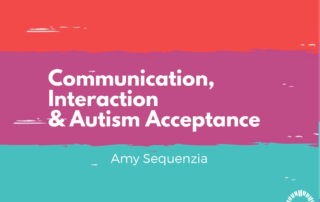
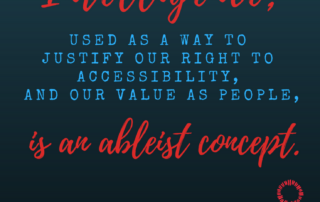
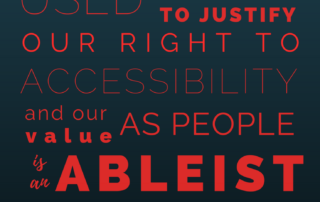
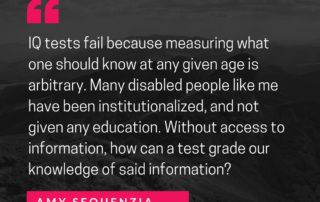
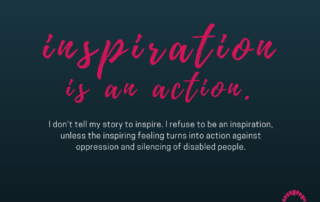
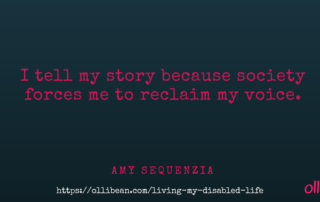
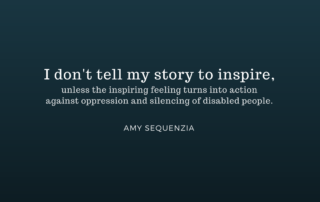
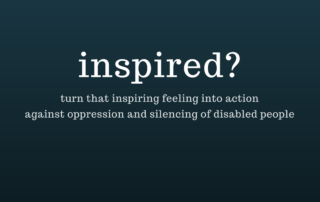
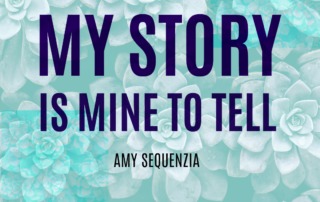
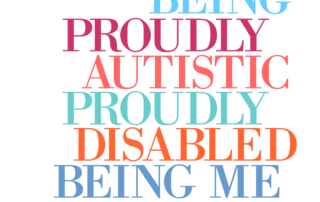
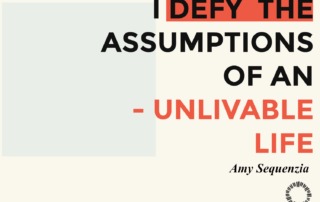
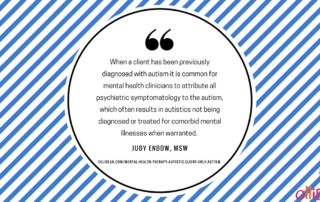
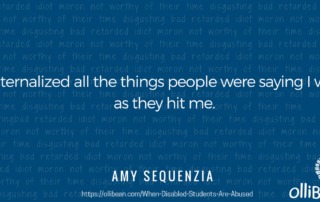
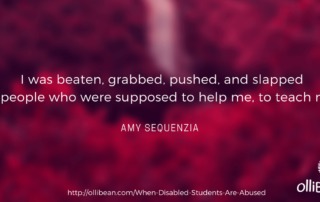
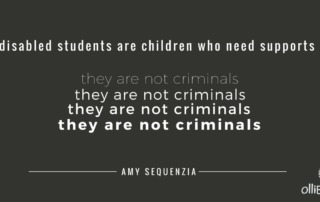
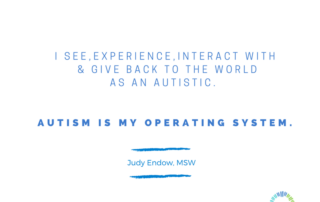
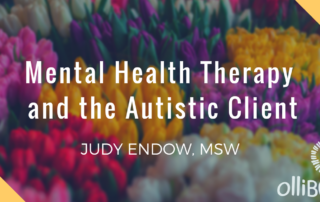
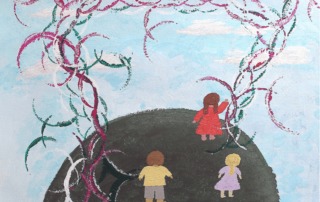
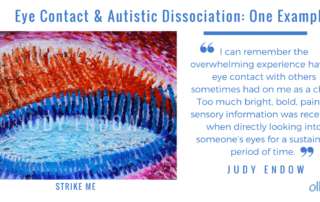
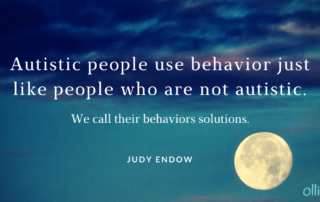
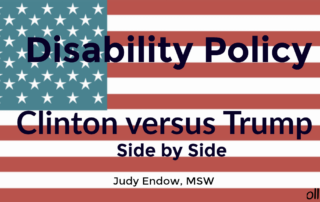
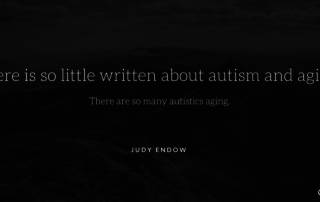
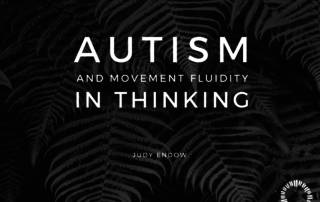
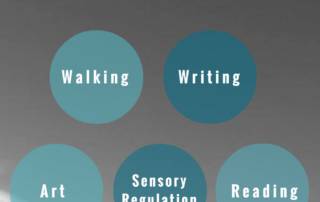
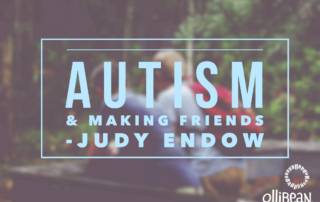
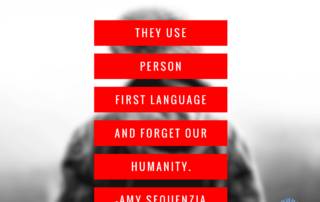
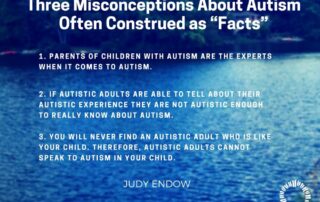
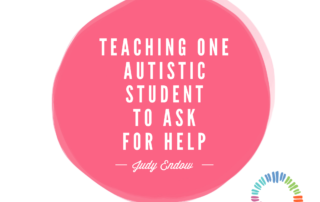
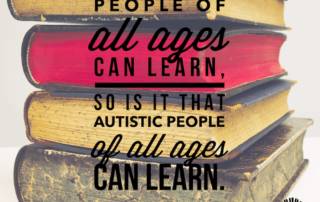
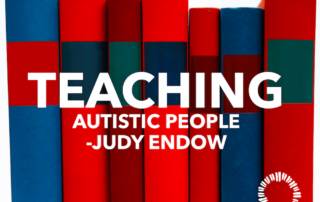
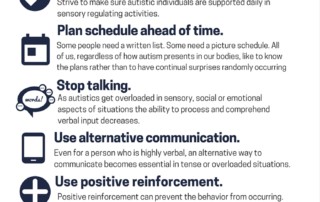
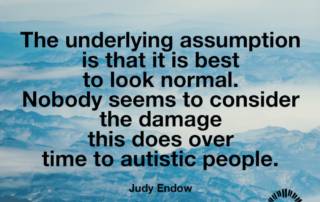
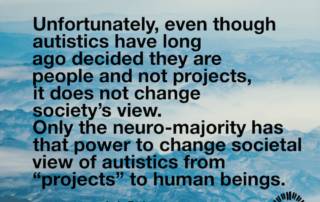
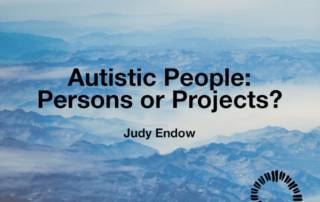
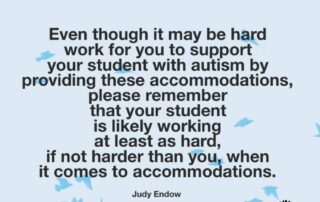
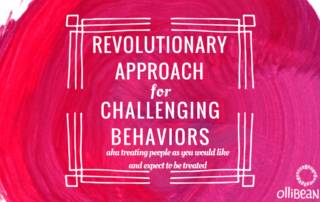
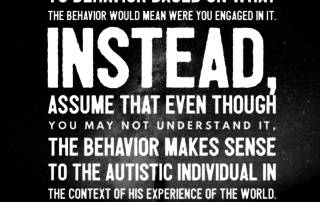
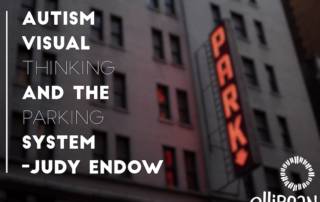
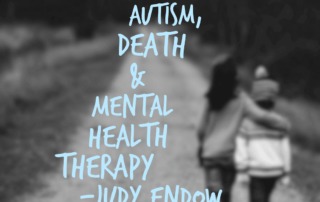
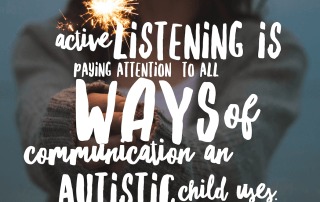
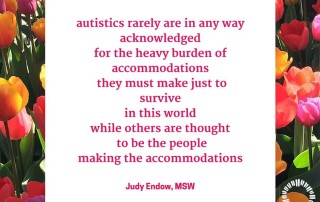
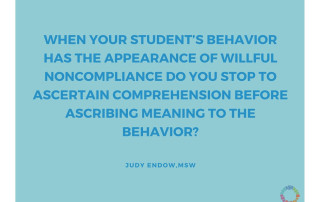
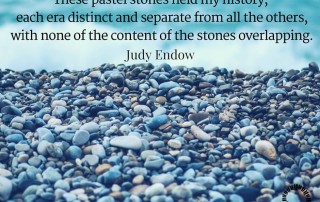
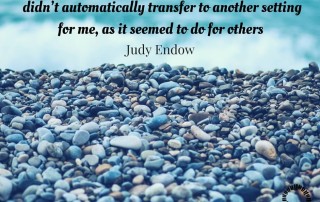
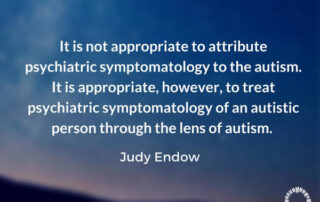
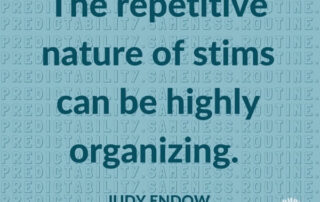
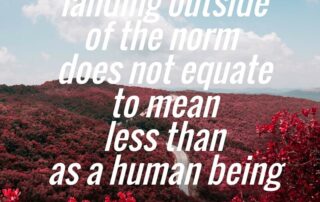
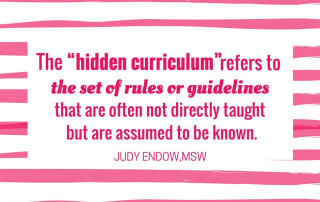
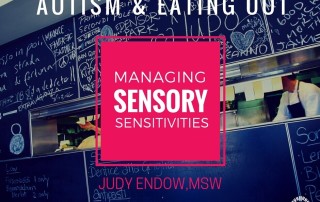

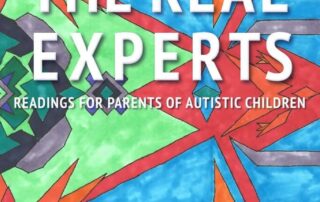


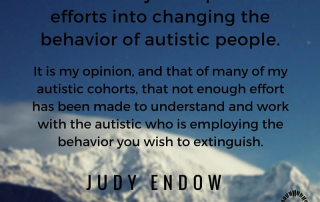
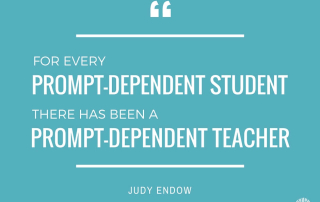
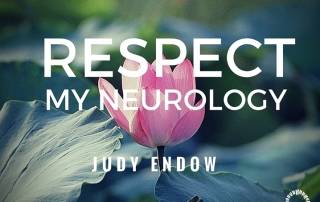

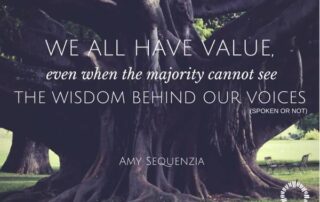
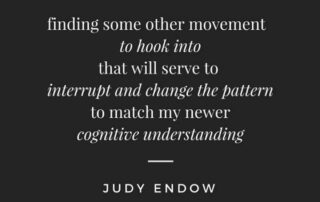
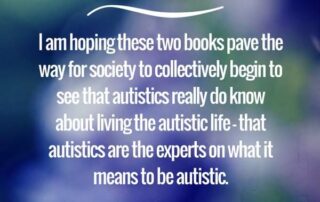
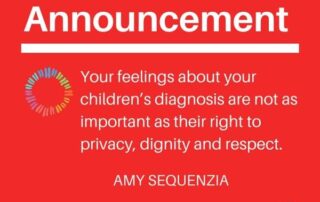
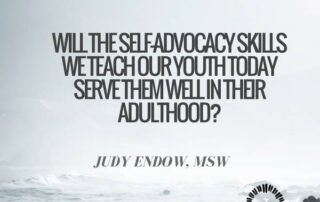

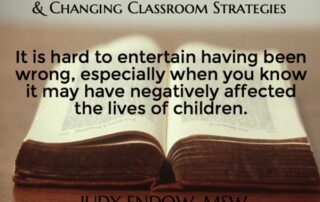


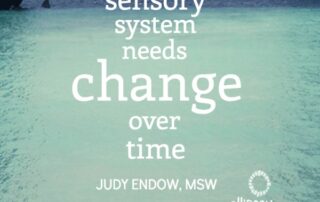
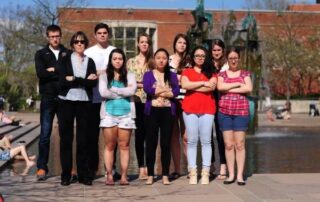
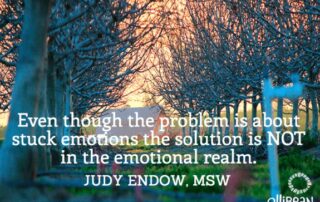
![[Image Description: The NeuroFly: top view of a bright blue human brain, with bright blue butterfly wings sprouting out of the sides.]](https://ollibean.org/wp-content/uploads/2015/10/NeuroFly-1-300x202.png)

